|
by Tony Copple Bella is a brown South African orphan brought up by her ouma (grandmother), whom we met at a large Bible Study in 2018 when she was 16, and who volunteered to lead a small ‘Mailbox Club’ Bible study for children. We ran weekly trainings for 8 volunteers in our house during 2018, which continued in 2019 with Bible study and social time, and over the weeks Bella and Laurie-Ann formed a special friendship. Bella was smart and with a strong Christian faith, and was truthful.
She had a rare bursary to pay for university tuition. We would take the girls on outings and give them birthday presents. In November the Cupido family suffered a trauma they never recovered from. The drug addict boyfriend of Bella’s sister stole all the stock from their grocery reselling business, spending the proceeds on drugs. On 6 December Bella had major surgery for scoliosis at Groote Schuur hospital in Cape Town. We visited her two days later. That Christmas we had Bella’s family of 6 for turkey dinner followed by Christmas pudding. The food was all new to them, and must hadn’t been in a proper house before. 2020. For a few months I drove Bella (and friends) to and from school to reduce strain on Bella’s spine after the operation. In February Bella had serious toothache (her two front teeth had been extracted before we met her) and was told by the free dental service they would extract all the bad teeth. Unhappy with this we took her to our dentist who built her a partial denture with 6 teeth. Two weeks later we received an unexpected donation which almost exactly covered the cost. In late February the kids were so famished when I picked them up for school I bought them hamburgers. There were other signs of famine in the townships. On 23 March President Ramaphosa announced a 21 day lockdown of the country due to Coronavirus, at a stroke taking away the livelihoods of those township families which actually had a wage earner, but giving a R350 ($30) a month social grant to qualified individuals. On 25 March I told the four families we had primarily been working with that we would pay their airtime and power online to same them leaving their houses during lockdown. Schools were closed. Many borrowed with no way to repay, leading to (family) violence. Requests for food were increasing, and I decided to buy in bulk and store in our house to make savings. In September we decided to buy a cheap laptop for Bella, which would be essential at university, but we kept it in our house or it would have been stolen. Bella’s family continued living at near starvation levels, alleviated only by food from us. Bella needed a new phone, and we said we would buy it in exchange for doing occasional housework for us. 2021 Cape Provincial University of Technology (CPUT) postponed her entry from 27 January because of Covid. We invited her to several trips that her ouma refused to let her go on, citing housework needs, but on 12 February she finally came with us to Hermanus, and wore a swimsuit I had bought her. In March we took her to Paarl, including the Spice Route for ice cream and chocolate. She came to our house to watch several powerful Christian films. We had tracked the spending on food for the girls, and on 11 April launched the ‘Sponsor Our Girls’ appeal. One of our friends replied that she would cover Bella’s family needs for the next 6 months! Over the next month the appeal brought in $3,626 and we were able to allocate the money for individuals based on what we had spent on them in the past. This was a tremendous relief for us. On 18 April I launched the spreadsheet to track all expenses, and the allowances due, much of them funded by the appeal. Mid April Bella distributed CVs to multiple retail stores, without result. Leroy, Bella’s sister’s boy friend was in court for throwing a rock at Cathy when she refused him money, and Bella was a witness. Next day I gave Cathy taxi money to pick up a restraining order. On 2 May Bella was asking for bread and poloney, a sure sign they had nothing else left to eat even after the allowance. On 11 May I sent out a second ‘Sponsor Our Girls’ appeal to a different target audience. We took Bella to see Pomegranate, the mission house in the mountains where we lived for our outreach after Harvest School in Mozambique. We had noticed that Bella had difficulty with distance vision. I took her to an optometrist for her first ever eye test. They provided a prescription, and she selected a frame. The total cost was $97.52. At this time Laurie-Ann received money from an art commission which covered the cost. We took Bella with us on one of our monthly visits to Hillsong in Cape Town and found ourselves in the front row, spectacular for her. By the end of the month the food subsidies were working almost too well, since the girls would call on us continually with their lists of food and toiletries, and I would drive all over town and Avian Park delivering. So I decided to pay them their allowances in cash every two weeks, so they would do the shopping, In Bella’s case we sent the allowances direct to her bank account. They still asked for us to help with extra needs. By early June Bella was self-sufficient in cash flow, and I introduced the direst deposit system to one of the others, who now had a bank account. One of my major time-consumers was keeping the girls in working cellphones, and sometimes I regretted ever offering to help. June was Matric exam month and Bella and her friend Joy spend hours using our wifi for revision. 7 July was the first weekday in lock down that we had no calls asking for help. Bella sent out another 10 CVs, and one of them bore fruit for her and for Joy: cooking fast foods at ‘Sailors’ take-away, although it only lasted a month. On 7 August Bella’s phone was stolen right out of her house by a neighbour while she was in. This meant she could miss vital calls from the Basic Education department, or the university. However she was earning good money from Sailors, and I went halves with her on a Mobicel Blink, with 16 GB. For R700 that could see her through university. 6 months after the Sponsor our Girls funding scheme started the stats were (for the 4 girls) R62,466 paid, R57,869 funded. Not too shabby, but as our year end departure date loomed this would change. We told Bella that after we left, her R1000 a week would fall to R500, but continue when we were in Canada. The other girls: no continuation. I delivered Bella 5 suitcases for use at CPUT donated by friends. 2022 On 18 January we finally flew out from Cape Town to Newark and on to Toronto. We were met in the snow by Brian and Cathy McBride – bless them. From then to now, our new mission has been caring for L-A’s 93-year-old dad. Mid February, Bella told us (via Messenger) that she had fallen off a chair while cleaning inside windows and damaged her fragile back. X-Rays showed the good work achieved in her operation in Dec 2019 had been undone. An operation was scheduled for 8 March, but would be more expensive now she was over 18, and she asked us to contribute R3,000. The operation was successful. On 19 May, Bella was diagnosed with drug-resistant TB, a potential killer, and she must spend the next month in a Cape Town hospital. She needed R1,000 hospital fee. CPUT is arranging for her to begin her studies remotely from hospital when term starts in June. She needed R830 for transport to the hospital. On 7 June, Bella heard that she needed a further scoliosis operation, requiring R3,500 hospital fee within days. By 18 June we had exhausted the funds left in FNB from the Da Vinci rent rebate, and the sale of the Mercedes to Lovejoy, and I began a series of wire transfers of R5,000 to keep the FNB account in the black. We made the decision to continue to support Bella and family even though it was eating into our limited financial resources. What else could we do? Cut her loose? We believed a way would be found to afford it. Support for the family of R500 weekly was just as vital as Bella’s medical costs; without it Cathy would pull her out of university and have her take a job in Worcester. On 6 August Bella asked us for R3,000 to be paid in 2 day’s time for university residence fees. Apparently her bursary only covered half of the fees. Bella’s total reliance on us for money is precarious, so on 21 August we had a Skype call with her explaining that any unexpected needs might reduce the time we can support her for. We could then only last the full 2 years with divine help. 6 September: Bella needs an urgent operation for TB with a hospital bill of R1,500. I had a bad thought: if she becomes too ill to answer her phone we would never find out? I could no longer help Cathy and the family with the R500 weekly allowance which Bella sends on. In investigating the TB, her doctors found that the source of some recent serious pain ha been a kidney problem that needs to be operated on – R2,000. Hasn’t this girl endured enough? Then on 17 September a heart-rending message bordering on despair: she needs another big operation on her legs to prevent her becoming disabled for life. We sent the R2,000 hospital fee. Then on 21 September we received an uplifting message: “I’m OK!” The last operation is done! On 22 September the university demanded her R3000 residence fee for October to be paid by the weekend. On 30 September they then asked for the fee for November – but then there would be 4 months when it would be paid by her bursary. On 4 October Bella slipped and fell and her back was damaged again. A big operation was needed - R3,500 – with some time afterwards in hospital recovering. The totals since we returned from South Africa had been R29,790 ($CAD 2,305) for medical operations, and R12,060 ($933) for residence fees. The exchange rate had been kind to us so far.
0 Comments
by Laurie-Ann Copple Tony and I have been on a steep learning curve in the care of my dad, but in a way it's quite a privilege. I didn't have the opportunity to be with my mom near the end of her life, due to my cancer journey in South Africa. You can't travel easily while taking chemo - I even found my journey to Namibia difficult, and that was by car. I am incredibly thankful that my sister fulfilled that role for both of us. My dad refuses to be in a care home, and just wants to be in his own home. Many seniors feel that way. He didn't even want to do what Tony and I did - to downsize and live in a condo. We found the changes we did to his home when he came out of the hospital in 2015 were essential now - things like lift bars in the shower and a proper railing on the steep porch stairs. Both dad and I use a walker (mine is more for balance and to walk further). Unfortunately my inherited walker and his are very similar, so he "steals" mine away. So I only use it outside. We manage. He has PSWs to help him with showers, and Tony and I manage his medications and meals. I'm the main cook, although Tony handles breakfasts. We do our grocery shopping online, which is either delivered, or Tony picks it up. There have been a few blips, but we've managed. Dad has had a number of TIAs (mini-strokes), but these are managed in a way where we spot his deterioration, and get him to a more comfortable position. Except for the first we experienced, where he fell on the floor and we couldn't lift him, it's been manageable. Some days have been wonderful, where he's back to his usual funny, caring self. Other days, it's like he's a different person. But always we try kindness with him, with insistence on doing things in a certain way (we have to convince him it's a good idea that he can support). We aren't trained carers but we are learning, and are given fresh grace each day. We are thankful. We are having hurdles with our own health journeys, especially mine - in getting care going. I can't even renew my accessible parking permit since I need a doctor to sign the form, and none of the walk-in doctors are willing, and most don't see you face to face anyway. But Tony is getting some good care for his own health. A lot of that is chronicled on the "Our Toronto Medical Journeys" tab under the Home section of this website. And while we don't always feel up to scratch medically, together we have been able to help my dad. One of us is always here - and usually it's both of us. There hasn't been a dull moment! It's only been two months and we are de-cluttering, going through Mom's recipes and keeping the "good" ones, sorting, filing, cooking, cleaning, caring. Believe me, we could use an army, but we're enjoying our time with him. And best of all, dad had a great day on his 93rd birthday as you can see from the above pictures. We are thankful. We also thank our friends who have been praying for us, and for him. He's having some good days, and on the bad ones, we keep him comfortable, fed and well-loved. It's part of "stopping for the one" - which includes family! by Laurie-Ann Copple "At the Burning Bush" - Laurie-Ann Zachar Copple, copyright 2020 I'm a seer. Since I'm a visual artist, I receive most of my impressions, visions and dreams from the Holy Spirit in a visual form - a picture. Sometimes I receive words or sounds, but it's usually by a picture or set of pictures. I don't necessarily need the burning bush experience, as shown in the line drawing above this message.
I knew that there was a season beyond my cancer journey and our South African assignment. I had to hang on, because God has a plan for us that He's been preparing for some time. I knew I was called to the UK in some way - both in Northern Ireland and in northern England. I also received impressions that my colouring sheets and books could be used as a platform for children's ministry anywhere we go, especially in Canada and the UK. Our involvement with Legacy Relay in South Africa (where they encourage seniors to pass on their legacy skills with the next generations) is a beautiful covering for this form of outreach. We were asked to represent Legacy Relay in Canada and work with our SA supervisors remotely. We plan to work with school children or a kid's club in Canada, and in time short term in the UK. We aren't sure how it will work out, but the plans will unfold as we pray. For the meantime, we are in Toronto taking care of my frail near 93 year old dad. This is a good thing, a necessary thing to do. But there is more. We are thankful for the more. Here is the glimpse that I received recently. Significant dream, Etobicoke ON, February 3, 2022 I dreamed that I was with Tony, but invited Tony’s mum Joan to Kenya for a journey from Nairobi to Mombasa. We enjoyed the journey, noting the running baboons, and driving on. She seemed to be happy that Tony and I were up for a coming adventure, and she was giving her blessing. The next scene, I’m in England in an old cathedral with beautiful wooden panels, similar to the inside of Christ Church Cathedral (Anglican) in Ottawa. I walk through a corridor, and I don’t have any trouble walking at all. I seem younger and much fitter (and smaller). I meet with Nicky Gumbel (of Alpha and Holy Trinity Brompton). He agrees to be my sponsor for my upcoming academic studies in Church History and Theology. I’ll be on a fast track programme that includes an MA that tops up my MDiv, to a THd (or PHd). I won’t even need Latin, French and German as I was advised back in the 1990s, since this is the fast track). Nicky told me that he and the hierarchy of the Church of England were very impressed with the work Tony and I had been doing and were doing in Legacy Relay in the UK (northern England and Northern Ireland). There were many children all over the country colouring in my drawing sheets and colouring books. Nicky became essentially my sponsor, academically and immigration-wise. The university that accepted me first as a fast-tracked MA student, then ThD, is Oxford University, with a few supplemented courses at Queens University, Belfast. I remember being at both universities as a “tourist,” but this time I was a working student. I was also involved with the Christian communities in London, Oxford and Belfast, with visits to Newcastle and Durham. Tony joins me later periodically on monthly intervals while I study and do some Legacy Relay ministry on the side. Tony busies himself with pastoral care of people that are brought to us, and also time with children. We seem to be getting younger, but not too young. We are strong and our brains are sharp, with God’s help and the mind of Christ. by Tony Copple In mission school in Mozambique with Iris in 2016, one of the many behaviours suggested to us was to remember that we are primarily concerned with immortal souls. Should the issue arise among the poor that without food in the belly, no-one is ready to embrace the faith, then we deal with it however the Holy Spirit may suggest. The example in the Gospel (Acts 3:6) was suggested as the response, so that the person in need would value the things of the spirit even if he/she were hungry. We were well aware that Heidi and Rolland Baker were keenly motivated to provide food where needed, feeding thousands of children daily in their missionary bases. We know that Heidi ministers and loves on people whether they accept faith in Jesus or not. Conversion is God's job. Our job is to love. But love looks like something. So when we arrived in Western Cape, South Africa in December 2017, these were the attitudes we had, and maintained for the first two years of our mission.
Early on I used to go with Pastor Folla to his Avian Park ministry where three times a week he would teach through praise songs, teach through the Word, and finally show God’s love with food. I only attended once a week for about three months, but it was an important part of the training I would need. No child went home hungry, a fact not lost on a few grandparents and older members of the community who attended and benefitted from the food. In May 2018, we began training eight volunteer leaders in our house to teach younger children the Bible message and aspects of faith using the excellent Mailbox Club materials. Soraya Volkwyn (now Tchau) did the teaching in Afrikaans. In October, the first Mailbox Club ran in Avian Park. Most weeks there were 3 – 4 clubs in operation. I supervised by leading some praise songs, praying with them and providing fruit. I drove from club to club. It all worked well, and the leaders enjoyed what they were doing. I brought apples or bananas (or similar) and that was our only expense, which we didn’t charge up to My Father’s House. This ministry took a significant change of course after lockdown began in March 2020. No longer was it permitted for small groups to meet. Under the surface the fallout was more dramatic. Most families with a breadwinner found they lost all of that income as employers laid off workers. Those families whose income was entirely from grants fared better, and the government added a new monthly social grant of R350 for the poorest. People queued for hours to collect this pittance. Since then, we have noticed changes in Avian Park. Parents couldn’t support their children, and the children moved to the homes of relatives who thought they could. So there would be 6 or 7 children living with one or two adults. Young men of working ages didn’t spend their days seeking the few jobs available, preferring to hang around street corners, some of them planning crimes to get money. Family members would steal from one another, particularly cellphones, for which there was a ready market. Those left without a phone suffered really badly. We bought phones for most of our girls, but they were usually stolen or dropped on the ground and broken. What should we do to help in this situation? We made a number of decisions. We would concentrate our efforts for the four families – B, A, J and C. We would also help C’s blind elderly grandmother as part of C’s family. We would not give any significant resources to others so as to maximize the benefit to these. Their #1 need was food. The government announced the distribution of food parcels, but we saw no evidence of this in Avian Park. There were some soup kitchens, but they often had their own clientele, not willing to help walk-ins. The best way for us would be to provide food parcels, but it was clear to me that a standard food parcel would not be ideal for anyone. Since there were only four, we invited them to tell us what they wanted, ie. a list. They usually communicated via Messenger to Laurie-Ann. I would then go shopping and deliver to the families. There was one item that was on every list: sugar. Next came the staple foods like potatoes, sugar, rice and bread. As we began deliveries, documenting them all for accounting purposes, something else became apparent. If they wanted to make a meal from these staple foods, but add additional items to the recipe like salt or spice, they would ask us for the salt or spice. One might have thought that with the key items provided free, they would have money for cheap additional needs. One would have been wrong. By the time they needed food parcels, they had spent every cent in the family coffers. After a few months I was spending hours each day shopping and delivering. To make things more efficient we had told them to order at least a day before they needed them. Then I would be able to deliver to several people on a single trip to Avian Park. But however many times I told them this they would always wait until there was nothing to eat in the house before calling me, and then they needed the food that hour, or at least within a few hours, and would call us to ask when I was coming. Eventually I realized we needed a different system or the time and effort required of me would be just too much. The answer was to send them money by EFT to a bank account, and ask them to buy their own food. Many missionaries advise against giving cash because it can be spent on drugs. But our families, who by now we knew pretty well, were so desperate food was actually all that they spent money on. At the same time I sent a private (non-Iris) appeal to a small group of supporters in Canada inviting them to ‘Sponsor Our Girls.’ The initial response was dramatic, with one person I hardly knew after meeting several years before, sent us $1,000. Because of the low value of the Rand, that amount buys a lot of food. There was enough to pay for two of the most needy families for 6 months. We hit a snag with our Canadian mission coordinator. Two of the sponsors sent their donations through them, and one of them mentioned ‘For the girls’ on an accompanying note. We didn’t realize it at the time but our mission support had been set up just for our own personal needs on the mission field (the funds for ‘programmes’ were supposed to be raised through the local Iris base). Tony believes that ‘For the girls’ also was a red flag, suggesting we could be funding a private project separate from our own personal needs. The root issue was that ‘For the Girls’ might be a terrorist organization; the CRA insisted that additional funding needs like this required additional charitable applications, which may not have been granted in time. We didn’t want any problems with our Canadian umbrella by this misunderstanding. An alternative might have been to draw the funds through My Father’s House, or ‘God With Us Ministries,’ the South African charitable organization of our Iris supervisors in South Africa. But we never considered these options, because we weren’t aware of the rules that IMC now reminded us of. The most practical solution to this stumbling block were to have the donors send money direct to us by e-Transfer or PayPal and forego their tax receipts. However, we are grateful for those who privately gave, and helped four plus families (M was also another recipient a few times, since her dad, the main breadwinner, died last year). By now, thanks to an initiative by Jan Buchanan of My Father’s House, the parent body of the Mailbox Clubs, there was a U-Save convenience store within walking distance for all the girls. In theory this would eliminate time I was taking shopping and delivering. We started regular allowances for the two most needy families, which would halve the time I was taking shopping. I based the amount of money on the expenditure for February 2021, B’s family had spent about R4,000 and A’s family had spent R2,000. On 18 April 2021 I sent these amounts to B’s bank account and A’s mother’s bank account. By a week later, they had spent most of the money and were asking for more to tide them over for the rest of the month. I should have realized that once they had cash it would be used almost immediately. This is cultural among the very poor. So I started sending money four times a month instead of once a month. That worked much better. They still asked me from time to time to drive them to town on shopping trips, partly because the U-Save didn’t sell everything, and also their prices were higher than the cheapest stores in town. Things settled into a routine which was working quite well. Our ministry had changed from a focus on teaching, mentoring and leading praise and worship, to keeping the four family groups alive (as well as encouraging them in their faith through Alpha and other means). Food inflation was rife, and the money spent in February wasn’t buying sufficient for July, so there were times I bought emergency bread and polony, or occasionally an additional allowance. The bottom line was success; our families had fuller bellies and fewer worries than many others in Avian Park. Evidence of this could be seen in an increase in muggings and threats. Three of the girls were attacked by gangs at knife-point at least once for any money they had on them. After six months, the time that I had assumed we would run for, because we would be leaving the country, the money spent on the four families was close to the donated amount. We didn’t leave after the six months partly due to our health, waiting for our SA visas, and partly due to flights being banned in the higher lock-down levels. So I put out a second appeal to the same generous folk who had given the first time, and we received almost enough for another two months. We also started a regular allowance for the third girl. I am writing this a month after that. We had made it very clear to the girls that who had been receiving regular allowances that these would stop or reduce when we had left on 18 December. One girl was a special project, expecting to enter university in Cape Town in January/February. We had told her that we would continue her allowance at R500 a month, half the previous amount, so that she had some money at university, and she could send some on to her grandmother. The fourth girl had never received allowances, just food parcels which would cease when we left. My hope and expectation was that when three of the four knew for sure they weren’t getting any more, their parents and relatives would be forced to support them, as they would have done were we never involved. Also the girls themselves would have found some sort of work. At the time of writing, this seems to have been the case, based on our not receiving desperation messages on Facebook Messenger. We did receive a heartfelt thank you message from the girl who never had an allowance, thanking us for all the help in the past year. This is all the more remarkable for being counter-culture. The exception has been a very determined and resourceful girl, C. She was the only one with both parents at home. Sadly, her mother left home for an unknown destination around the time we left, leaving her bank card and phone with C. Her father is working at some distance but returns at weekends. He has income, but is an alcoholic, spending much of his income on beer, which was probably the reason his wife decided to leave. C contacted us relentlessly; she was effectively an orphan. Her grandmother refused, or was unable to help her. C was the first girl to run a Mailbox club, and the last one to stop, just a few weeks ago. She was generally truthful, and sincere in her Christian faith, and prayed for us regularly. While I couldn’t allow her to think we might continue supporting her with money regularly into the future, I did send her R300, twice, within the first few weeks after we left because she convinced me she was destitute. Since then, their demands have stopped. I have spoken to them by phone and it certainly didn’t sound as if they were starving. Money must have come in from somewhere. They all have multiple aunts and cousins who are generally in no better state, but a few are, and I suspect when it was clear that the Copples had left, some responsibility was taken. A’s mother is capable of working but is accident prone, several times arriving in hospital after questionable (alcohol-influenced?) behaviour, reducing her reliability as a breadwinner. As a twist in this tail, we were not able to leave the country on 18 December, testing positive for Covid in the day of our flight. We decided not to tell the girls we were still in Worcester in quarantine, but it meant we were able to monitor their situations more accurately than had we been in Canada. In the cases of two of them, as described above, we did provide money to bank accounts, but they thought they had reached us in Canada and we didn’t correct them. They never asked any questions about our situation. I am somewhat relieved as I write this a week before (DV) our final departure that they haven’t communicated more, and we must assume that as a result of our prayers for them and their adapting to their new situations that they are surviving. Once we really have switched warm South Africa for cold Canada, we will communicate with them all so they don’t get the impression we forgot about them. We could never forget them. In hindsight, we had been faced with a situation without precedent - Covid, so the normal rules didn’t apply. I believe we made the best decisions under the circumstances. After all, “love looks like something.” A poem by Laurie-Ann Copple Glory to God in the highest
And peace to all the peoples We thank you Lord for your birth Your death and resurrection Christmas isn’t about snow Or about all the trimmings When we celebrate you Summer or winter, we’re winning It’s all about trust; Joseph and Mary Trusted you for their path Here in covid times, we do too It’s a very different Christmas! You carry us in transition From South Africa back to Canada You are Lord in both places. Thank you Lord for blessing us through kindness Through friends, through family We are not alone, we never were Even in quarantine, you are here. You are the centre of Christmas You are the wings that will get us ‘home.’ We trust you for the next season, of 2022 You will give us strength to help Frail family members We hoped to see in December by Laurie-Ann Copple Line images by Laurie-Ann Zachar Copple, copyright 2021. They are from Colouring with Jesus 2, which is currently available in South Africa via Takelot.com As missionaries, we have been warned about culture shock before we enter our mission field (whether on a short term mission, or a long one). There is also a reverse culture shock that comes as you return to your “passport country,” as some writers define your “home” country. After a while, your mission country feels like home. This happened with me on my first mission trip to Kenya. After an initial culture shock, I became so African in many ways, and sometimes forgot I was white. I felt ripped apart when I arrived back in my parents’ home in Toronto. It felt so boring, so flat, after the intensity and colour of Kenya. Kenya will always be my very first African country. I was also called “Ann” here rather than Laurie-Ann, and I gives me warm memories when other Africans (and the Pakistanis) call me by that name. I go by Rab’ia with the Somalis, Mama Lala with the Mozambicans, but my full name Laurie-Ann with the South Africans. Still I get “Laurie,” and “Yalla” all the time. My actual nickname is “L-A.”
There is always a transition when you move from culture to culture – including sub-cultures within your own region. Canada is filled with people around the world, so this adjustment can be tricky when trying to communicate well. So there is a transition to acclimatize to a multi-ethnic country when you visit different neighbourhoods. South Africa also has this challenge – with 11 official languages and many tribes, as well as the white Afrikaaners and English-descended South Africans. Moving from community to community can be a wacky transition. Some provinces, and even towns, can be vastly different from each other (for example, Western Cape ways and Gauteng culture – it’s different, even the slang and pronunciation of Afrikaans is different). Moving in and out of a culture by moving from one country to another is a higher level. It’s like climbing or descending a steep staircase, and the height is well over your head. Each short term mission (Kenya four times, Pakistan, Sierra Leone, Mozambique, Botswana, Namibia and Northern Ireland) prepared us to be flexible, which was very much needed in South Africa in 2016 and from 2017-2021. While I have been stretched on each of these times, it was in SA that I developed the phrase “TIA” (This is Africa). South Africa is a land of first and third world at the same time. We have enjoyed some of the first world comforts, but live as simply as we can. We work with third world kids and teens. They come into our home, and sometimes, even though we trust them, some things go missing (hey, just ASK us). We fight with their short-term thinking, where they can’t or don’t want to plan for their futures, when every week can be a struggle to survive in a township. Theft is common, as is violence, rape, and vandalism. Windows are broken as a gang dare. People steal from children and blind elderly widows. We are glad that we don’t live in that situation, even though our apartment is right in the centre of town. So we encounter a variety of cultures here in Worcester – the kind Afrikaaner farmer families, the NGO colleagues (expats or locals), the African expat community (mostly Zimbabwean), the ‘coloured’ community (mixed race and KhoiKhoi descendants), English South Africans (expats from KZN province), and the Zweletemba residents (various black tribes). We have been blessed by people from each of these communities. Each has a different way of lifestyle, although all of them are African. We have adopted a bit of all of them. In terms of grappling with cross-cultural living, often you are like a yellow plasticene ball. The host culture is like a blue plasticene ball. Once you mix them, the first ball (you) becomes green. You are forever changed. The shade of green depends entirely on how you mix. I love to adopt my host culture as much as I can, with still being me. Well, I like to claim the best of the best, although sometimes you may catch things that are not so great. While we prepare to return to Canada to care for my dad (and have further medical care for Tony), I am at least preparing my heart to let go. I can feel the tug both ways, from the new people we love to family and friends back in Canada (Ottawa and Toronto). We are a green ball returning to a yellow ball culture. But it helps us greatly to have a purpose when we return – caring for my frail dad, who is getting pretty confused these days. He needs us. All around the world we have been dealing with covid restrictions to counter the spread of an awful virus. Avoiding covid (in various ways) has become a culture in itself. Add to that travel between countries (an international move in our case!), our health situation, and hiccups that come with moving, and the stress level goes up. Moving is high on the stress level. International travel used to be fun for us, but is no longer. And saying goodbye to different friends, many of them forever friends, is hard. Saying goodbye to the teen girls we mentor is a heart tug. But they knew we couldn’t permanently stay. So while we are in this vertical spot, where we don’t know where our foot will land next, we trust in our faith and in Jesus as our foundation. He carries us and roots us in him. The Holy Spirit is our dear friend who fills us with fresh hope for new beginnings, and that this is not the end. It’s just the end of this particular assignment. We are thankful for the many gifts South Africa has given us: deep friendships, laid back life, thinking in the now moment, joy in being with children, intense beauty in the mountains, by the ocean and in vineyards, and the deep satisfaction in knowing that we have loved many children well. South Africa also gave me the platform of colouring sheets and colouring books. I never thought that I would do this kind of ministry. It’s amazing – and I know this will be used in many other countries, including Canada. So while we look ahead to Canada, and for a while, look back at South Africa, we are grounded in Jesus. He does not change like shifting shadows. We are thankful. To God be the glory. by Tony Copple "Strand - Dancing in God's Grace" - Laurie-Ann Zachar Copple, 2020 We humans can be very arrogant when living in a foreign country and discovering things are done differently. Our natural reaction is to stop the locals in their tracks and show them what they are doing wrong, and suggest they change to our better ways. But it’s not that simple and it is that arrogant! Culture can differ widely from nation to nation, and sometimes what has been practised for generations is best in a given environment.
I was keen to change things when we arrived in South Africa. In my enthusiasm to stop people cycling on the wrong side of the road, I would drive closer to the pavement so they couldn’t pass me, and then stop. Luckily no-one was ever injured. Neither did I manage to change their behaviour. They probably just thought I was another weird white guy. After nearly four years driving in towns and townships, I no longer take issue with cyclists having absolutely no regard for or knowledge of the rules of the road. Even more surprising, I am realizing that in these conditions, cycling facing oncoming traffic is actually more efficient and safer. I just take extra care when I see someone on a bike with a baby in one arm and operating a cellphone with the other. Funerals are important here, and not just because there are so many of them; particularly during Covid. People will put themselves in significant debt rather than to decline to go to the funeral of a relative, even a distant relative. In the townships, it sometimes feels as if everyone is a distant relative. A bus will be chartered to take the relatives to a funeral, possibly half way across the country, risking the need for more funerals in this country which has among the worst records for road accident in the world. Many of those going will have had to borrow the funds for the bus fare and food on the journey. Although nominally a Christian country, that Christian faith is often infused with ancestor worship, pre-dating their Christianity, which may explain why attending funerals is so important. During lock down, funeral attendance was limited by the government, and I would have occasional success dissuading the girls we mentor from attending some distant uncle’s funeral, mainly to reduce exposure to Covid. In general however, adults wouldn’t think of following my advice, and would risk their health and build up their debt without hesitation. The only type of life insurance that is heavily promoted is funeral insurance, intended to pay for not only a coffin and a preacher, but refreshments for the crowds that attend, not all of whom may have known the deceased, but most of whom are very hungry. Being very hungry and living in townships brings with them a number of cultural characteristics. The #1 concern is where tomorrow’s food will come from. Stealing from family and friends is so common as to be normal. Items of choice to be stolen include cell phones because there's a ready market. I now have a defective cell phone in my car so that if I am held up by gangsters, and they demand a cell phone, I can give them one. I was asked to take a man to hospital after he was hit by a car. I brought him home to the family he had been staying with, but they became his target when he noticed a family member had hair straightening equipment. He later walked in to the house (people usually leave their doors open when they are home) and stole the equipment. Several hours later he wandered back into the house drunk from the beer he had bought with the proceeds for a fraction of the value of the equipment. We invite the teenage girls we mentor to our house sometimes to use our unlimited wifi so they can do school projects. The girls really appreciate being in our house for a few hours, but when some of them leave we occasionally find that some of our stuff has left with them. In their minds, this is not stealing. They are entitled to it because we have it and they don’t. Very rarely they have taken money out of Laurie-Ann’s purse. If they are accused of taking something they will lie very convincingly that they haven’t taken it, regardless of the evidence. The dog bites the hand that feeds it. Is this behaviour cultural? To them it is natural, and a way to survive. What is unusual in South Africa is to have the very poor living in townships quite close to first world middle class neighbourhoods. What kinds of culture develop in such environments? There are benefits to township dwellers of proximity with well-off people. Some of the wealth filters through, in unskilled labouring jobs, shops, hospitals and health care (free to the poor). We don’t freak out if something seems to have disappeared, and don’t make a fuss at all unless we have incontrovertible proof as to the culprit. Why should someone born into middle class norms complain to someone born in poverty? This culture won’t be changed by self-righteousness on our parts. Planning ahead is not cultural for the very poor. If they are running out of food, they won’t seek help or take any action until all the cupboards are bare and there is no money in the house or the bank. Then, very hungry, they will beg for help, and need it now. Part of this is an understandable reluctance to beg, until the stomach forces action. There are many examples of not planning ahead. No-one keeps paper and few have a pen, so formalising any sort of plan needs planning in itself. The only plan they have is the immediate need that is forefront in their mind at the time. For example, immediately money is available from a grant pay-out, they will go shopping and spend all the money. For this reason, we give weekly allowances to three of the girls. When we started that support six months ago we sent them the allowance that covered a month, but within the first week they had used it all. We are always recommending they never use up all the money but keep some for an emergency. For example, if someone needs to go to hospital, and no ambulance has come, they need R10 to get there by taxi, and they don’t have it. They can’t even buy R10 of air time to call someone. They are stuck, and someone could die, because they spent their last rand. In the event that a relative dies and they feel they must attend the funeral, their only option is to borrow the money for the fare and food on the journey, which can begin a cycle of debt that can precipitate violence if not repaid. The best justification I can think of that would support this culture is a literal reading of Matthew 6:34 where Jesus says, “Therefore do not worry about tomorrow, for tomorrow will worry about itself. Each day has enough trouble of its own.” Who am I to argue with him! I used to think teen and child pregnancy here was the result of the child grant that would be paid to a mother for the first 18 years of the child’s life. Western countries also pay grants to encourage higher birth rates. But here the birth rates are already high, and there are so many children and such high unemployment. I now believe that what we are seeing is the human cultural characteristic stated in the Bible to be fruitful and multiply. The poorer the community, the more this is followed, ensuring that poverty will not reduce the population. Many of the mothers are teenagers from about 15 and up. What is gratifying is how hard the moms work to look after their children. There is no lack of love. Few fathers are in evidence. Once conception is achieved, the chance of a father providing any support is rare. No one has any money other than the grant. Among the black community there is an additional cultural objective of showing that a female is capable of bearing a child and therefore would qualify as a wife. Since condoms would distort such practices, they are not widely used. I have heard psychologists on radio promoting their use as if they were the next new thing. Birth control is largely left to women. Are these cultural trends beneficial to society as a whole? Demographic studies tout Africa as a future world powerhouse as North America and Europe decline from a dearth of labour from their declining birth rates, and a lack of immigration. So you have to ask ‘Is there anything westerners can teach Africans in this area?’ When Apartheid ended in 1994, the government decided to provide free low-end housing. In some provinces, promises were made by the ANC to provide free education, electricity and water, putting the idea into peoples’ minds that virtually everything should be free. These were nothing more than electioneering promises and worth nothing. This created an attitude of entitlement among a generation of people who had never heard of economics. Ever since then, it has caused problems that don’t exist in other countries at least to the extent that they do here. If someone owns or works on a farm, their lives are in danger, since the expropriation of land without compensation has become an electoral slogan that hovers around enshrinement in law, and those without land believe they have right on their side. In a country where homes and healthcare are free to the poor, why would education be valued? And that is a massive issue. The only key to unlock poverty’s stranglehold has been scuppered by well-meaning but misguided politicians. We can hardly blame the poor. by Tony Copple (Continued from the July 2021 post)
I am a poor biblical teacher, and a worse preacher. I am a better thinker and seeker after the logic behind the Christian faith. God either exists or he doesn’t. Whether you believe or not doesn’t affect his existence. It’s not a matter of faith bringing him to existence. No one is coerced into Christianity, but if after the privilege of hearing the evidence you decide not to believe, perhaps because of peer pressure, be aware of the magnitude of that decision. The book of Proverbs has serious criticisms of scoffers. All preachers who enlighten me on any aspect of the faith are bringing me gifts from God. In my very occasional sermons or teaching, or even just praying in a group, as soon as I start to speak I usually sense the guidance of Holy Spirit helping me tell the story, so I am sure that all sincere preachers receive the same help. Without it, preachers would soon give up and enter secular work. What is happening here is the spread of Christianity worldwide. Jesus is still building his church. It is growing fastest in the most dangerous places, such as northern Mozambique. The basic principles and beliefs in Christianity have universal appeal among the poor and rich alike, though unfortunately many of the rich don’t believe they have a need that might be supplied by the faith. Missionaries and pastors can present the Gospel, but the actual decision to follow Christ comes from something happening in the heart. As a long time leader of Alpha courses, my belief is that, at the right time, Holy Spirit comes upon the new believer and suddenly their path ahead seems clear. They decide to jump into the pool. After that they will never be the same. Jesus has become vital to them, even if a few weeks earlier he was an irrelevance. So it is wrong to think badly, as a Christian, of our friends who decline. It is probably negative to harass or pester them. Holy Spirit has it under his control. Our role is to invite people to ‘come and see.’ as Andrew did to Peter. Today in Iran and other countries closed to our faith, Holy Spirit is at work through dreams and visions, and people with no previous Christian knowledge or experience are being drawn to Christianity, despite the personal danger this puts them in. Then, what they need and are desperate for is a copy of the Bible in their language. Using conventional logic, such potential converts really should ignore the call for their own safety, but when offered the keys to the Kingdom which makes all aspects of this life understandable, exposure to danger is an acceptable price to pay. The Bible invites us (Rom 1:20) to look around us at the wonders of creation if we need proof of the existence of God. I would like to consider just one aspect of creation: water. Water is the only liquid that expands as it freezes. This has huge implications for life on Earth, and elsewhere. It means that as ice forms on water it floats, reducing heat loss from the water under the ice. For this reason, fish and other creatures survive under the ice. Mountains and rocks turn into soil over time because water that seeps into crevices in the rock then expands as it freezes, and the force of the expansion is sufficient to crack the rock. Without soil – no plants. The elegance of the unique design of water in that way is awesome. Most substances can exist as solids, liquids and gases, and they expand as they change state from solid to liquid to gas. To imagine that the water anomaly could have happened by chance, in the face of statistical probability, relatively soon after the cooling of the planets, is an impossible challenge for my brain to imagine. Water came to this planet long before any living thing, yet it contained these special characteristics in preparation for the unique needs of life. This is either an an amount of luck beyond all imaginings, or the minutely detailed pre-planning by a divine mind. Science has revealed thousands of other extra-ordinary and counter-intuitive characteristics that strongly suggest very intelligent design. Let’s talk about Jesus (with acknowledgement to Johnny Cash). At the age of 30, with no formal education (he taught the teachers), he started his ministry, picking 12 uneducated (but teachable) men to whom he could introduce the notion of a spiritual kingdom that has a presence on earth but also a presence in Heaven. Along the way he introduced a system of morals that simplified the ancient Jewish law, and serves today as the best guide for living this life and the one to come. All of his teaching has remained vital and relevant throughout history and is set to continue so in the future. He knew his identity – the son of God – but was killed for telling the very people who had asked him who he was. To this day millions of smart people can’t accept who he was, because he hasn’t yet ‘knocked on their doors’ (Rev 3:20), while smaller numbers of even smarter and more fortunate people accept his identity without question, as do masses of regular and particularly poor people. He has had more influence on this world than all other influential leaders put together. That’s quite a legacy for three years talking to anyone who would listen. The book about his life is the best selling book in the world, satisfying the huge demand to learn about him. For many of them, particularly in parts of the world where he is only worshipped in secret, he is the object of passionate love. Can you believe that the creator of the universe wants such a personal relationship with those who accept him? YES! Laurie-Ann and I commune with him daily as we navigate life, and we see the results in a calmness in the face of challenges, and in my case a stream of thoughts and nudges, often early in the day with ideas and suggestions for the day ahead. Laurie-Ann seems to have a continual conversation with Holy Spirit, sometimes about her artwork, but really every aspect of her life. Is anyone reading this still doubting that he was who he said he was? That he was not just a man, but the incarnation of God? How can he not be the focus of our lives? As CS Lewis has famously written, Christianity, if false, is of no importance, and if true, of infinite importance. The only thing it cannot be is moderately important Yet that is exactly the status that nominal Christians give it. How then can any seeker after truth not make it a cornerstone of their lives? Maybe it is peer pressure. Even if we are passionate believers, we may not be accomplished debaters, and arguing against a spiritual unprovable belief is easier than arguing for it. Yet, what value would a belief in God have if his existence was a mathematical certainty? He didn’t want it to be. He wanted faith to be part of the equation, and that we should acknowledge to our detractors that we believe because he invited us to take a giant step that requires courage and the expectation of opposition. Over the years my faith has ripened to the point where there are so many reasons to believe, far outweighing reasons not to. Miracles permeate the Bible, but they are not an end it itself. They are a sign that there is far more to this world than meets the eye, as Shakespeare famously proclaimed through Hamlet. Jesus predicted that greater miracles would be done by his followers than had been done by him, and so it has proven. Talk to any missionary in the field about miracles in our time, and they will astound you. Miracles abound in our world today, from healings to raisings from the dead to multiplication of food (as in the feeding of the 5,000), even turning water into wine. Why don’t we read about such things in our newspapers or on-line news sources? Editors of secular newspapers would be sacked for printing them, since their typical readers would assume they had lost their critical faculties. This is strange, since journalists are generally searching for what actually happened. On a side issue, western secular radio stations won’t play Christian songs regardless of their quality or popularity. This isn’t the case in South Africa, where Christian songs are often played on all sorts of stations. In Canada, new laws are being enacted intended to curb the freedom of pastors freely to preach the Gospel, or anyone in public life from portraying Christianity as something to be sought after. We ourselves have heard of many convincing miracles and met people who experienced them. In our own missionary journey we have documented ‘kindnesses of God’ that have allowed us to overcome challenges, starting with the receipt of our South African visas within 1 day rather than the regular 2 months. L-A has been completely cured of inflammatory breast cancer after we made a very deliberate decision to trust in the Lord rather than return to Canada immediately as required by the travel insurance company. The money to pay for her treatment arrived spectacularly from more than 100 donors who had been touched by Holy Spirit to do something extraordinary. However, the greatest miracle of all, on which Christianity is dependent for its existence, is the resurrection. Books such as ‘The case for Christ’ and ‘The God Memorandum’ have been written by sceptics intending to prove it a myth, but discovering it to be true. Some have called it one of the best attested facts in ancient history. Once one hoists on board the truth of the resurrection, all challenges to the Gospel fall, like dominoes. If you are of an intellectual persuasion there are many learned studies of the death and resurrection of Christ that explain God’s strategy in planning such an extraordinary event, but the only part of it most people need to know is that they can expect eternal life after death if they repent of sin and acknowledge the Saviour. I for one am fully convinced and ready and eager for the next phase of existence. John Lennon was strong on truth, even writing a song called ‘Gimme some truth.’ In his day truth was being downplayed as a virtue. Today, being truthful has become naivety, and lying acceptable. It is easy to see this in politics, but more devastating when we discover the lies of someone we know. Some of the best liars I have met are the teenage girls we mentor in South Africa, and they learned it from their parents, so desperate for handouts that they will lie, cheat and steal from friends and family. Jesus called himself ‘the way, the truth and the life.’ The Bible is truth you can depend on, so much so that its credibility extends beyond things that seem reasonable into counter-intuitive phenomena, including the sermon on the mount which turns natural beliefs upside down, like loving enemies. How revolutionary it must have been to the early church, though other world religions pre-dating Christianity also promoted loving your enemy, which from a practical viewpoint is the only way for disputes to dissipate rather than escalate. A holy book so ethical can only come from a belief system based on truth, and it adds to my comfort in believing. The final reason I believe is learned from Rolland Baker. He has a way of clarifying significant aspects of our faith, and where there was confusion and a lack of clarity, replacing it by what to my my mind is how God would have planned it, and always it is totally clear from the Bible, but I and many others had forsaken what the Bible said for some watered down explanation currently in vogue. We live in troubled times, faced with Coronavirus, climate change, ISIS and international terrorism, mass shootings, gender-based violence, people living in desperate economic circumstances, rulers whose only rule is to better themselves at the expense of those they rule, the devaluation of truth, and extreme inequality (particularly in South Africa). How can we understand what is going on and how to navigate through it? There is a school of misguided thought that teaches that belief in Christianity can somehow deal with these issues, and life on earth will change for the better. Do not give credence to anyone who tells you this. Jesus said exactly the opposite. His teaching was never how to change the ways of the world. He actually told us that the king of this world is Satan, wreaker of havoc. What he taught was more about the next world. He showed how we should prepare ourselves for the Kingdom of Heaven in Heaven, by being part of the Kingdom of Heaven on earth. It is that part that yields answered prayers and other blessings. This life is so short, but our potential lives are forever, if we learn, while here, how to make it so. The focus of Jesus on the afterlife is unmistakable, yet generations of Christians have chosen to interpret his teaching as it applies to our temporal lives in the present. For some, they have dispensed entirely with what happens when we die, replacing the emphasis with the prosperity Gospel, or prayer for our messed up world. I don’t believe this is what he asks us to concentrate on, which is much simpler and on the face of it, more achievable. He said that the most important thing in life was loving God, and the second most important was loving one another. Notice the priority here. We need to learn and try and understand everything that can be known about him, as we build our relationship with him. He needs to be front and centre, the number one focus of our lives, and this can only be possible if we have fallen in love with him. When that happens, we stop worrying about all our temporal concerns, and he is everything. This way of looking at the world and the spiritual world is so elegant, so right, and such an explanation for the way things are that it adds significantly to my reasons to believe. The Bible says there are four stages for most people in the process of entering into God’s kingdom: Believe; Repent; Baptise; Receive Christ – become reborn. We have discussed the first of these. If you have enough evidence to believe, then pursue the other three. Remember, you cannot prove your belief; you still need to take a step of faith – that’s the way God intended it. God bless you. by Laurie-Ann Copple Anyone who knows me even a little, knows that I love to draw. It’s an expression of creativity that I’ve had for years. It carried over to my devotional life as a Christian when I came to faith in 1988. I put art aside for a while because at the time, art was my identity. Jesus needed to be my identity instead. The highest identity you can ever have is to be a child of God, unearned, as a gift. The art then becomes an extension of my faith and creativity, which is the right perspective for a God-given gift.
My art came back to me in full during Harvest School in Mozambique in 2016. Then I began to draw during worship services in many places. This grew as an expression of love, not a way to heal my heart. At the time, I never thought that I would be producing a colouring book, let alone two! But it makes me incredibly pleased that I’ve achieved it, with help from translators, a proofreader, and others cheering me on. Both my current devotional colouring books were produced during a long illness during 2019-2021 (inflammatory breast cancer), and when we were working with kids from primary school, townships, farms and church. We have loved them all. I’m so pleased that God has helped me use the gift he has given me as a way to bless kids and draw them closer to God. In the case of Legacy Relay, art, devotions and soaking prayer has been used to help the school kids to strengthen their creativity, spiritual ears and hearts towards hearing Holy Spirit’s still small voice. We even worked on a painting together that included personal symbols from each child. Back in 2015, a dear lady at Kingdom Culture church gave me a prophetic word that we would be in Africa for three years (it’s nearly four years now, but the original visa was for three years). She also said that Tony and I would publish three books (there may be more, since my biography “Holy Ghost Sommelier” is on hold, and I plan to combine all my “Ways to Grow in God” articles into a book as well). So if those are published (as e-books), that would be at least four books! Let’s hope so. The two colouring books contain 109 images from colouring sheets we use with the kids (and adults who are young at heart). I’ve also created another six sheets, so that’s 115 images now available to children’s ministries and missionaries in at least 12 countries. It’s an incredible privilege to sow these into these groups as a gift. So how did I begin the colouring sheets? Well, my prophetic drawings look a bit like colouring book images – whether they are filled in or not. I never thought to make a book out of them, but one day when I was about to colour in an drawing, I heard the still small voice of Holy Spirit telling me to stop and not colour in the drawing just yet. He wanted me to have Tony scan the drawing so that the children could colour it in instead. Then I had the first two line drawings ready for the kids to colour. We tried them first on the rough and tumble farm kids. They didn’t want to do anything that we offered them, but I was able to share with them about the drawings, and to tell them that the drawings were created when I was worshipping God. The drawings have an anointing. When people colour them in, they are also entering into worship – especially with the prophetic images. When the farm kids saw the drawings, and began to colour, there was a holy hush in the room and these normally loud, boisterous kids, were quiet, intent and worshipful. We were amazed. Were we on to something? Then we tried out the colouring with other groups of kids: from Avian Park, from our school MasterPeace Academy, our local church, and then Legacy Relay at Worcester Primary School. Kids in Canada loved them as well, including my own niece, who especially loved the drawing of herself as a princess, looking at her image in a dresser mirror. We initially put the first 21 images on a USB along with 57 audio podcasts of Ways to Grow in God, which sold well in Ontario. But there needed to be a book, with devotional stories about the drawings first in English and Afrikaans. I worked tirelessly on images (and stories) for Colouring with Jesus, which was first published in March 2020, before we were stranded in lockdown. I was encouraged to draw in the chemo room at Cape Gate Oncology in Brackenfell, Cape Town. I was there often from September 2019 – November 2020 to receive chemotherapy, oncology consults, Herceptin injections and later, radiation therapy. Since the chemo infusion took a long time, the nurses encouraged me to draw. This was a perfect thing to keep my mind occupied, and I drew either by impression, or by drawing people in the room. The first drawing I attempted in the chemo room was “I will give you a new heart.” I had an overlapping impression over sister Marianna. I saw angel wings on her back, and that she had a heart in her hands for the other patient. Marianna (and all the other nurses) loved the drawing. She even bought her own copy of the first book after it was published, as did one of the oncologists. Most of the images were drawn during the chemotherapy period. The second book, Colouring with Jesus 2, contains 58 images, drawn from February 2020 – January 2021. This spans from chemotherapy, mastectomy, radiation to the monthly Herceptin injections. In February 2021, I was declared chemically cancer-free. Drawing these images and making these books was a needed creative outlet to help me heal. At the same time, many images were impressions or based on prophetic words that I was given. Others, were me trying to capture the amazing scenery or children in this beautiful area of South Africa. Still others were reminders of other places that mean a lot to me. Will there be a Colouring with Jesus 3? Absolutely! Although it won’t be published in South Africa. It may be published in Canada though! I am thankful to call myself an author as well as an artist. Add to that devotional writer, audio producer, and admin person. I will always be a missionary, although after we return to Canada (which is now looking like October 2021), it won’t be under Iris Ministries Canada. We’ll be retired from that assignment. But we will have an assignment with family in Toronto, before our return to Ottawa in 2022. Then we can start Legacy Relay Canada as a weekly ministry to kids. We plan to launch an art website after our return, that may include other ways to buy my art, colouring books and art commissions. At this time, people can connect with me for art commissions (for digital versions of commissioned line drawings). Anyone can print a line drawing jpg from a printer, so you don’t have to be local for that. Thanks for reading. God bless you. by Tony Copple Tony sharing a testimony at a Catch the Fire Ottawa event to Pastor Steve Long I was brought up in a nominally Christian protestant family and attended a primary school where I learned about the Trinity, heaven, hell and Satan at the age of 5. It all made a big impression. Sadly the impression had faded by the time I went up to university and in my first year there I lost my faith (such as it was) completely. Looking back, what I lost was any belief in a spiritual world. If I couldn’t see or touch it, it didn’t exist. Up till that point I hadn’t read or heard any of the Bible other than sermons in chapel services. To my mind, my new atheism was logical and fitted my world view. I wasn’t an atheist evangelist; I seldom thought about religion, or met anyone who did. I believed I knew all there was to know about Christianity, just by my own thought experiments, conducted without any form of evidence.
Around age 35, a number of Christians and Christian experiences started influencing me. My (then) wife was Christian and went to church regularly, and I joined her at Christmas and Easter. Then for some reason I started going to a local church and was asked to run a Sunday school group for teenagers, which was very stressful because they really weren’t interested and I wasn’t a good teacher. The fact that I was asked to do this shows only that the pastor didn’t vet me, assuming that because I was reasonably articulate and attended church, I was qualified. Because I was going to church, even I believed I was a Christian. Occasionally I saw or met people for whom their Christian faith was extremely important to them, but I saw them as fanatics, to be avoided. When I went to a Billy Graham crusade in Norwich in January 1984 and he invited people wanting to know more to come forward onto the pitch, I didn’t go, believing I was mature in my faith and certainly not a fanatic (I was unknowingly religious but not yet a Christian). I started seeing adverts in London for Luis Palau, but they didn’t say anything about him – just created curiosity. Then I saw a TV show where he appeared, and I liked him – not a fanatic at all. I decided to attend one of his events in London. That evening - 19 June 1984 - changed my life forever. 37 years later, I know what happened, since I know vastly more about the faith than I did then. It was Jesus through the Holy Spirit wanting to come into my life, and I said yes. I actually said ‘Yes, yes please.’ I wanted fellowship with others in the same boat, so I called the Luis Palau HQ and asked them what I should do next. They said I should join a home group, and gave me an address. That was the start of what has been a thrilling journey of faith. In 1999, I married Laurie-Ann, for 11 years a convinced Christian, and she has since then been a wonderful mentor; having earned an Mdiv degree, (as well as a BA in religious studies and sociology) qualifying her to pastor a church, at least in pastoral care and outreach. We have been trained in numbers of aspects of Christianity, and taken some leadership roles, notably with the Alpha course (and later with Iris Global's missionary Harvest School). Over the years I have developed my understanding of what Christianity is. It is common today – and I concur- to say that Christianity is not a religion, but a relationship with Christ, who said that he was the solution for our lives, but should we place anything or anyone above him in importance we could not enter his kingdom. This wasn’t a threat; it is the truth. 35 years ago when I began studying the Bible it seemed to be a collection of history and sociology, and the biography of an amazing individual. Today I see it more as a living organism, with every verse being like a collection of molecules in DNA, so that the whole describes a very complex collection of information about God’s purpose and thoughts in designing us – an extraordinary experiment – and how well it is working out in the face of continual opposition. In this article I am attempting to list some key aspects of Christianity which seem undeniable to me and might help others speed up their own exploration of spiritual matters. So in this treatise on why I believe, let me start with the Bible. This will alienate some readers, who don’t believe in the Bible and it has no authority for them. But a study of the Bible shows it to be a book like no other; in fact much more than a book. I have re-read very few books in my life. The Bible is different. Almost every verse has the potential for multiple sermons to be preached about the depth of its meaning. Every Sunday world-wide, thousands of preachers are doing just that as they expound on the meaning. The stories and statements (particularly by Jesus) are extraordinary, and counter-intuitive, and often cannot be understood without significant study. Muslims often quote such stories in attempts to discredit Christianity. The Bible is like the myriad of functionalities within the human brain, all interconnected and communicating so that the whole brain, if healthy, can control the body and program the mind. On the nuances between verses in the Bible hang concepts on which a civilization can depend. Verses I have read and thought about multiple times will be shown to have yet another meaning or focus by a preacher who has received a revelation about it, and from that moment I, and others will see this new significance. Verses I know well will all of a sudden seem to show new meanings and significance to me. The final verse in the book of Judges, “In those days Israel had no king; all the people did whatever seemed right in their own eyes” is the explanation for all the godless people living in history, right up to terrorism today. It makes the point that atrocious behaviour by some was not seen by them to be atrocious, but necessary and justifiable. Without ethical leadership, the people decide what is right. The Bible laid down the standards of right and wrong in the 10 commandments which have shaped the constitutions of countries and judiciaries ever since. By the time of Solomon, the experiences of multiple generations in applying these principles gave rise to hundreds of best practices which Solomon collated in to the book of Proverbs. To this day, we don’t quarrel with the wisdom in Proverbs. In the previous generation, Solomon’s father King David, who had a powerful relationship with God, had described that relationship in music and lyrics in the book of Psalms, which are sung today and form the material for many contemporary Christian songs. The Bible is not squeamish. In its earnestness to articulate the awfulness of sin, it pulls no punches in describing the heinous acts by whole generations of people without moral leadership, some of who had known the guidance of a faith in God handed down from the patriarchs. If we think such things are hard to read about, imagine the heartbreak suffered by our creator God. No wonder he rebooted the whole experiment with the flood, and destroyed nations that stood in the way of his plans for his Kingdom on earth, as it is in Heaven, nations whose people rejected the one true God. In Leviticus and other early books, he laid down the laws of what was clean to eat and what punishments were appropriate for evil doers. These rules were necessary in those days, but many were dispensed with by Jesus. Sadly, ignorance of God’s plans and their realization has promoted a whole movement of anti-Christians who point to Old Testament beliefs and customs as reasons to reject the whole Bible, Jesus, and his teachings. Is it possible that such a book could have been the brainchild of 40 men and women independently recording memories and ideas? Or is it not more likely that they shared the same source of inspiration enabling them to record with high accuracy the details of events from their pasts, often decades before? Just as one good miracle is worth months of good teaching for an evangelist in converting people to the faith, so it is with prophecy. The Bible is full of predictions of the future, particularly statements from the Old Testament referring to the Messiah in the New Testament. It was these hundreds of fulfilled prophecies that first opened my eyes to the divine inspiration behind the whole Bible. How else could these be explained? Some, such as Isaiah 53 are so explicit, they appear as if written after the events they describe, rather than 700 years before. Today I see the Bible as a collection of precious information, handed down to us though the endeavours of forgotten monks who devoted their lives to hand-copying it for posterity. No other holy book covers history from creation to the future to come. The writing and the preservation of the Gospels by men with no significant education, cast out by the Jewish establishment, is a miracle of accurate memory over decades. That we have Paul’s letters verbatim is a vast treasure, and the timeless wisdom contained in them is miraculous/Holy Spirit at work. No system of thought is as wise as the Bible. It is God's download showing us how to live in a world of challenges, relevant to this day and for the future. Some of it, eg Proverbs, brings us the best of ancient experience. But the most powerful parts of the Bible are the words of Jesus and the statements of those who knew him. To be continued… by Laurie-Ann Copple Tony and I have had a special time pouring our love, Bible study, mentoring and spiritual parenting into the girls. Just recently, we were gifted with a highlight of our entire time in South Africa; this was when Anthonica was finally baptized. This happened on our wedding anniversary. To add to the favour and celebration, we even had an indoor heated pool with steps that made the journey to the water easier. Quite a few months back, Nieka asked us to have her baptized. We were led to use the Alpha Course as a preparation to baptism, and to strengthen her faith in Jesus. She is a sure Christian, and she is growing wiser beyond her teenage years (in spiritual things). Then we had several barriers to the baptism. An Avian Park pastor was willing when the weather was still warm, but the pump in his pool stopped working. Then it didn’t work out for timing in other venues. Finally, Tony asked YWAM base leader Arno Pienaar for advice on where to go that has a warm pool. The answer was a health spa, that permits baptisms after hours in the colder months. We were overjoyed. Tony read up on how to baptize, since this was new to him, although we have seen it done by others. We enjoyed a time of sharing Bible verses about baptism being more than a profession of faith done by obedience, but also a strong symbol that you are willing to die to sin and self-interest and be alive to Jesus Christ. We spoke with her about this. When she originally said she wanted to be baptized, she said that she wanted to be closer to God and not do bad things. She inherently felt the pull towards doing wrong that we all feel – but she also knew the cure – Jesus himself. Paul had said in Romans 7:23-25: “For in my inner being, I delight in God’s law; but I see another law at work in me, waging war against the law of my mind and making me a prisoner of the law of sin at work within me. What a wretched man I am! Who will rescue me from this body that is subject to death? Thanks be to God, who delivers me through Jesus Christ our Lord! “ And we shared with Anthonica another passage in Romans 6 where we become buried in baptism with Jesus Christ. This is an act where you identify with him, and he begins a process in you where you can become more selfless and alive to God. This is exactly what Anthonica wanted. It’s what God is still working in us – in all of us to remember our baptismal vows (thinking of the Anglican liturgy). A baptism into Christ is a calling as God’s child. Anthonica had three attempts to ‘get dunked’ and finally was immersed, to the joy of Tony, her mother, me and Jan, the founder of My Father’s House. Jan had known Anthonica for years, and was full of joy in this special day. We also had an opportunity to pray over Anthonica, give her encouragement and love through prayer and specific scriptures. These were: a) Proverbs 3:5-6 “Trust in the Lord with all your heart, and lean not on your own understanding. In all your ways, acknowledge God and he will direct your paths” and b) Jeremiah 29:11. “For I know the plans I have for you, declares the LORD, ‘plans to prosper you and not to harm you, plans to give you hope and a future.” Afterwards, we had tea and cake, and we witnessed a mother and daughter full of joy and love for each other. Then I shared that it was our 22nd wedding anniversary and they were surprised that I didn’t share this before. My reason was simple. I didn’t want our anniversary to overshadow Anthonica’s baptism. That afternoon was all Nieka’s, not ours. We were glad to share it. The evening would be ours, which was a quiet evening enjoying one of Tony’s favourite meals at home. But the highlight was truly Anthonica. It made us proud to have this as a highlight of our time in South Africa. Here is one of our spiritual daughters, and she truly will go far if she sticks to the path laid out for her. She’s not alone, Jesus is with her. Always. by Tony Copple "Can you see me now?" by Laurie-Ann Zachar Copple, 2020 (c) Tony has been thinking about the causes of the poverty that we are knee deep in - not ourselves, but for some of the teen leaders and their families, and the kids that we mentor and work with. Township poverty is different from the poverty we saw in Mozambique. But it is grinding poverty - the kind that when you just about have your head above water, someone, or some gang member pushes you under. - Laurie-Ann We came here to love and help people in poverty; particularly children. I am not sure what we expected it would look like. After three years plus, we now know what it looks like, and thank God that he has given us the means and the desire to help a few people in their great needs, with the help of some of you reading this. There are many people with a better understanding of these things than I, and I ask their forgiveness should they read this and disagree with my conclusions. It’s just what I see. Apartheid ended in 1994. During its time laws were passed which benefited the whites at the expense of the poor, including restricting their access to education. The purpose of that was not to save money; it was to attempt to make it very hard for the black and coloured races to elevate themselves above poverty, then or in the future. It succeeded so well that a further post-1994 generation has missed out on learning above the absolute basics. The uneducated parents are not well equipped to bring up children. Since 1994, this specific problem has been addressed to some extent by placing schools in the townships, and allowing township children access to all schools in their area. We know many teenagers who have benefited from these schools, and are way better prepared for life than their parents. In the present lock down however, there is one glaring problem: wifi. On-line learning has become an essential part of the teaching method, and the schools provide comprehensive materials usually via WhatsApp to allow the children to study from home. But township children almost never have access to wifi, and must therefore buy data. They have no money for data, or anything else, so most of them have missed the on-line learning. This is in effect a return to the Apartheid system of privilege mostly for white kids. This is why, from the beginning of lock down, we have provided free air time and data (and power) to the five families we work with. We can do this from our own computer using an app called Powertime. We also have them to our house frequently to make use of our unlimited wifi so they can do school work and share lunch with us. The solution would have been for the municipal government to have funded free wifi hotspots throughout the townships, but I have never seen or heard this mentioned in any policy statement. Sadly, there are many drop-outs from the schools, even though the children know it is their one chance for a better life. A girl we once included in our training sessions stole from our house. Not because she was desperate, but because all her life she had been taught by parents to take any opportunity to steal, as a matter of necessity to put bread on their table. She dropped out of school at 15. Her mother was attacked on two occasions by her live-in boyfriend, who was in and out of jail, and often threatened the girl. We worked quite closely with her and Child Welfare to arrange that she stay with an aunt rather than in her own dangerous family, but sadly she continued with a life of petty crime, stealing from her aunt. Like many poor South Africans she continually made decisions that worsened her already bad situation. Today, she is a drug addict and prostitute on the streets of Worcester, fending for herself. Her mother also still sees the man who abuses her, and like many in her situation never took the obvious action of a restraining order on him. Stealing seems to be endemic in Worcester townships. Within families, brothers will steal from sisters and both will steal from mothers. One family we know well, headed by a grandmother, used to buy bulk food and sell it to neighbours – a helpful income stream. One day, I drove them home from a supermarket with my trunk full of bags of staple foods. Within 24 hours, the boyfriend of one of the daughters had forced entry to their house and stolen all the food, and sold it for drugs. By this act he destroyed their immediate livelihood and the means to keep their business going in the future. They have never recovered. Cell phones are very common even among those who have almost no other possessions. There is a cell phone repair shop on almost every street in the town. There is a network of dealers who will buy stolen phones for a fraction of their value and pass them on for resale through the shadier cell phone repair shops. This offers a source of income to every young boy with no conscience. We had bought a cheap smart phone for one of the girls we mentor. A week later her brother took it right off the charger, and probably sold it for a pittance. Without the phone she is dependent on borrowing a phone from anyone she is with, the most common reason being to tell us she hasn’t eaten for two days; please will we bring her food. This girl is resourceful, energetic, and started a Bible study group for children in her community which has run for the last three months. Both her parents live locally and are working, but earn so little that she lives with an aunt. The government pays disability grants and child grants. Some girls from the age of about 15 will have babies in order to receive the child grant, not realizing that babies cost more than the grants. The fathers are seldom involved with their offspring after conception and this is somehow viewed as normal. One sees the young mothers in the street with their baby on their back. A proportion of these babies get taken in by grandmothers. Not only the very disadvantaged have babies. We know an 18 year-old with a place at university and a very bright future who became pregnant. She now faces a life of dependency. Rape is frightfully common. One of the girls we mentor was raped recently, and this was the second time in her life. The perpetrator wore a balaclava so she cannot identify him, but believes he was a gang member, possibly carrying out an act to advance his standing in a gang. A family of six we help includes four children/teens abandoned by their natural parents, and only two of the four came with child grants. (This is the family which had their bulk food stolen). The other adult in addition to the grandmother is a nineteen year old orphan with a scholarship to a Cape Town university. She tried hard to get a temporary job prior to starting at college later this year, with no success, even though she is highly capable. We are very concerned that when she does start at university, her grandmother will insist she comes home to continue helping run the family. We are planning to assist her and the family financially after we have gone, as we have been doing since the start of lock down, to prevent her losing her university education. With this in mind, we have recently switched the support we give her from buying and delivering much of the family food, to a cash amount every two weeks. This is only possible because two generous Canadian supporters agreed to sponsor her and have provided all of the money she will need until we leave. We are praying for more supporters for the other girls we mentor. I mentioned above that babies cost more than the grants. One factor in this is that disposable diapers are used for almost all children, however poor, costing half as much as the parent’s food budget. We bought cloth nappies for one mother, which are very difficult to find in Worcester stores. Yet now she has used them ever since, saving significant expense. She has nothing to do all day, so washing nappies is not a problem. I cannot fathom why disposable diapers are so much used in this community, other than that everyone else uses them. One associates most illegal drug addiction with the poor, after they have been targeted by gangs and hooked. But there are more serious addictions in these times of lock down, when there is so little money around that would-be addicts have no cash for the dealers. An example is sugar. Parents here introduce their children to tea and coffee taken with three or four teaspoons of sugar, since that’s the way they have always taken it. We have been supplying staple foods that we buy in bulk to our families for the last six months. The one item which they always ask for is sugar, more than vegetables, spaghetti or potatoes. We have seen it in our own house when they visit. Some cannot stand coffee with only three sugars; they need more. I gave up sugar in tea and coffee over a three week period 30 years ago (having similarly been introduced to it by my well-meaning parents), resulting is my being able to eat as much sweet treats as I like, which is plenty, so I gently try to encourage the children to cut down, so far with no success, even with the bright ones. Sugar is the most powerful poison in the world, killing more than any other substance through obesity, diabetes and other conditions. In South Africa, more than 50% of women are obese and diabetes is very common. The amount of money poor families spend on sugar contributes to their poverty. Another addiction is cigarettes, where South Africa is a world leader. As soon as a young man or woman is earning even a little money, many of them will start smoking. The cost to their lifetime cash flow and to their future health is massive, yet they see role models, politicians and businessmen smoking, and want to follow. There is one bad habit that seems almost universal. When people make tea or coffee, they fill the kettle to the top, even if they only want one cup. Having never learned physics, they don’t know that halving the volume of water boiled halves the cost of electricity used to boil it. Since heating water is a substantial proportion if what they use power for, cutting the cost by half (on average) saves a lot of power. By the way, the habit of over-filling kettles is almost as prevalent in western households. On a worldwide scale, the waste is astronomical. In South Africa, a serious dent could be made in load shedding if this one action were taken, but I have never heard it recommended by Eskom, the only power company, or any politician. Some of the subjects mentioned above are normally categorized under home economics, or financial planning, subjects unheard of among the poor in the townships. When they receive grant money, their natural action is to spend it all on food. They never learned to keep back a proportion for emergencies, and the idea of saving for future needs is totally unknown. As we started providing food, I used to think that by giving them the basic staples, like potatoes and rice, they would then have enough of their own money to meet their less common needs, like soap, toothpaste, air time and sanitary pads. But a day or two after the grant comes in, and they have repaid loans and bought food, they have nothing, not in their bank and not at home. There’s nowhere to keep money at home where it won’t be stolen. Further, when we give them enough food for several days, they will gorge on it and have nothing left after the first day, because they are always so hungry. So we tend not to give them large amounts of anything. We have only occasionally given cash, in case it would be spent on bad things, which has meant that we have always done the shopping and delivery until very recently. With one family, which we have grown to trust more, we have just begun giving them cash instead of buying and delivering food, because shopping trips were taking too much of our time. Also, there is now a U-Save food and convenience store located in Avian Park, which was an initiative of private individuals, not the municipality. It remains to be seen if the experiment of providing cash will work. As an ex-professional financial planner, I have attempted to teach some of these principles. See http://web.ncf.ca/dq579/audio/cwcp_50_podcast.mp3 and https://www.coppleswesterncape.ca/coppleblog/archives/07-2020. Unfortunately little interest has been shown in these teachings, or in personal financial planning. Cashflow is always a problem in the townships. Government grants can be paid into bank accounts, and more have bank accounts than you would expect for this reason. Many don’t, and they can be seen in long line-ups on grant days. Receipt of the grant is seen as an entitlement, just as the original allocation of their free houses was soon seen as entitlement. When we give food we seldom hear a thank-you; it too is something they feel entitled to. Once the grant money has arrived the first slice goes to some lucky people who have lent money and should be repaid, if only to encourage them to lend again. Less lucky donors will have to wait. Then it’s off to the supermarkets and stores for food and clothing for schoolchildren; school uniforms are compulsory. Schools continually ask for money from the children for events or outings. Usually the complete amount of the grant is exhausted within two days. We have been trying to encourage our families not to spend the full amount of the grant but to keep some back for emergencies, such as taxi fares if someone has to go to hospital and the ambulance hasn’t come, or money for air time for emergency calls. In the present situation without emergency funds, every rand is always spent. Young children ask every adult they meet for R1, enough for a pack of cheese NikNaks. So our girls will give us a shopping list of 15 items including very cheap ones, because there is literally no money (and no food) left in the house.
If you were one of the people who lent money, there is a brief window therefore when you might recover your loan before it’s too late, and you are told to wait another month. Prior to lock down there was another problem; a significant slice of the grant would be spent on alcohol at one of the many liquor and wine stores in Worcester. Drunkenness on pay days has reduced considerably during lock down, helped by bans on alcohol sales at the higher lock down levels. If you are a less important donor, there will be innumerable excuses why the loan cannot be repaid. After weeks or months of waiting, some donors, who are usually extended family members, will resort to threats of violence and actual violence to get their money. The violence could be breaking windows, or physical attacks with broken bottles, or anything else produced by anger. We have personally seen these results. Until recently we never lent cash, but the insistent demands finally persuaded us to do so in a few desperate cases. We never lent more than we could afford to lose, and almost never recovered the money. One lady who did return R200, then asked immediately for another loan of the same amount for another month. We had to disappoint her. In such an environment of unemployment, young men join gangs and sell drugs. Rival gangs make war on each other for territory. Innocent residents are caught up in the territory wars and fear to cross certain streets. Shootings are common and though most victims are gang members, stray bullets fly and innocent people are killed. The police fear to come into the townships at night and ambulances won’t come in without a police escort. We have a number of times taken the victims of gender-based violence to hospital during the night. Our car is well known in Avian Park and so far we have not been attacked. Although the townships were a product of Apartheid to keep whites separate from coloureds and blacks, the end of Apartheid has not alleviated the township scourge. Although there is no longer any enforced separation, economic factors have brought about a status quo that resembles Apartheid. The whites try and ignore them and certainly don’t offer any helping hands. Help such as it comes more from foreign missionaries. It seems that little will change in the near future. It may have been thought that townships adjacent to residential areas would benefit from employment opportunities and the charity of the more well-off. But as many cities have found, as they prosper and prices rise, the poor get poorer, unable to afford the higher standard of living. There are five or six dealerships on Worcester High Street selling BMW, Ford Rangers, and a host of very expensive SUVs. Mercedes Benz are common – much more than in Canada. There is no shortage of money here on the right side of the tracks. Within the township populations are a proportion of naturally self-motivated and gifted individuals. Many of them have skills and talents that will not be recognized by their parents. But a few gifted kids will shine and flourish, encouraged by a loving mother. Trevor Noah has shown what is possible. Scholarships to universities are available to coloureds and blacks, and the schools are producing candidates. These are the hope for South Africa, because qualified candidates for business, professions and politics are scarce. Because of this scarcity, unqualified crooks are able to obtain positions of power. The result of this is the corruption that this country has become known for. At present, the schools are still allowed to included Christian culture in their syllabus, and children grow up knowing the elements of Christian morality, even if they don't practise it. We see this in the children’s ministries we are involved in. There are 40 churches in the Avian Park township alone, though only 4 with a church building. Christianity is not laughed at; it is still something to aspire to. Western countries, in their mad rush towards removing religion from the public forum, may yet experience problems they never could have anticipated before their laws began being passed by atheists. President Cyril Ramaphosa of South Africa never finishes a speech without asking God to bless his country. God has a plan for South Africa. It is a brave work in progress, and much has been achieved since 1994. Free speech really is free here, and there are plenty of good brains in all races seeking to make things work better, and they are being heard. Over time they will succeed. Maybe, just maybe, the poor will not always be with us to the extent they are today. by Tony Copple We know that scripture tells us that we overcome by the blood of the lamb and the word of our testimony (Rev. 12:11). Both of us have had health challenges on the mission field. This isn’t new to missionaries. Hudson Taylor had health issues in China. Heidi Baker, co-founder of our mission movement IrisGlobal (of which we are under the care of both Canada and Western Cape, South Africa) had debilitating MRSA, which was killing her. She overcame when God healed her miraculously. Then Rolland Baker had cerebral malaria and other issues for a number of years. He almost died. But God restored him through excellent medical treatment and prayer. L-A also is returning to health after overcoming aggressive inflammatory breast cancer. Other Iris missionaries have been healed. Others were only healed in heaven. But we all have overcome. Here is Tony’s testimony through his eye issues while also battling TB (tuberculosis). He is also officially, the oldest Iris missionary. We are proud of him, and his commitment to love children, teens and the vulnerable. His huge heart has been well known for a long time, but as a missionary, he is used as a father (and grandfather) to many.
I also have been promised at least twice through the still small voice of the Holy Spirit that my healing is in South Africa. I clung to this promise for issues like osteo-arthritis and mobility issues. Later I developed HS and inflammatory breast cancer, which also brought lymphedema. However God healed me of cancer and is working on the rest. I know that Tony’s healing is ALSO included in this promise. We have been kept in South Africa for our healing. We have usually been helped so quickly, and with such love, that there is no comparison between public care in Canada and private care in South Africa in a Christian atmosphere. (Laurie-Ann) Medical history of my eyes 1n 1985 I had a ski-ing accident in Scotland where I lost several teeth. It is possible my left eye also sustained damage, though there were no obvious symptoms. In December 2020 I had cataract surgery on both eyes. The right eye came through the surgery well, with better vision than before the surgery. The left eye took twice as long for the operation because the surgeon discovered damage (from the 1985 accident?) and had to make adjustments. Following the surgery the vision in the left eye was always blurred despite two prescription lenses being made. Detached retina of the left eye. On 5th April 2021 I noticed a dark vertical band on the right field of view of the left eye. Each day the band increased in width, On 8th April the band covered half my field of view. I called the cataract surgeon, and he was very concerned, but the earliest he could see me was Mon 12 April at 4 pm. By 12 April the band covered 90% of my field of view, leaving a small area of peripheral vision on the left extremity. I was essentially blind in that eye. The surgeon told me I had a detached retina. He said he would call Tygerberg Hospital and see if it were possible to have it operated on in the public system, since I have no medical insurance. (My travel insurance only ran till Nov 2020 when I would have returned to Canada, if not for Covid). Next day he emailed to say it was not possible to get surgery in the public hospital system. He recommended I contact a retinal surgeon in the Cape Town area. 13 April we made a list of retinal surgeons from the Internet, which included Dr Norman Nieder-Heitmann and Dr Steve Lapere in Claremont. 15 April we had to go to Paarl for physiotherapy for Laurie-Ann, so while she was being treated I drove to the Paarl Eye Centre and spoke to Dr Norman Nieder-Heitman’s secretary. She thought it unlikely he would be available in the near future, but said she would call me. Fri 16 April – I called Dr Lapere’s office and made an appointment for a consultation on Tue 20 April, with surgery 21 April. I had to go to my GP Dr Eric Van Dijk’s office for a prescription, but when I told him my eye situation he said he wanted me to see another eye surgeon, Dr T Keulder immediately to confirm the diagnosis of a detached retina. I walked to his nearby office and he examined me and confirmed the detached retina. He said it was extremely urgent to have surgery. I told him I had the appointment with Dr Lapere; however he called Dr Norman Nieder-Heitmann and arranged for me to see him on Monday 19 April. He wrote an introductory note. I asked him what time was the appointment, and he said I could turn up any time and he would fit me in. This sounded odd. When I got home I tried to call Dr Lapere’s office to cancel, and Dr Nieder-Heitmann’s office to confirm a time, but both were gone for the weekend. Mon 19 April. I called Dr Nieder-Heitmann’s office to be told I had been expected at 8 am. They rebooked me for 10 am tomorrow. Tue 20 April. Dr Nieder-Heitmann saw me and emphasised how important it was to use all available resources to save an eye, and examined me. The retina was still attached over half its area. The bad news was that these operations sometimes must be repeated – several times – for the desired result – so the cost can multiply. He was not too concerned by the 15 days since the detaching started. He explained the mechanics of the operation, saying gas or oil would be pumped into the eye to flatten the retina against the eye wall. He gave me the quote for his services, and his staff found me the numbers of the Cure Day hospital, and the anaesthetist. With this information I was able to estimate the total cost at around $8,697. My son James video-called from Las Vegas and was very keen on going ahead with the operation; offering his help if funding was an issue. That evening we had our weekly Zoom prayer meeting with good friends from Hillsong in Somerset West (Cape Town) and they heard the whole story. I started by telling them that from a financial and common wisdom perspective I was ready to accept the permanent blindness in one eye in view of the inability to focus the left eye following cataract surgery, the many risks associated with surgery, and the cost. We had begun to ask our supporters for funding and already about $2,500 had come in, which I would return if we didn’t go ahead with the operation. Naomi and her husband Faan led us in some concerted prayer, and were adamant that we proceed with surgery, totally confident that it would be successful and the funds would come in. They had received a verse for me from the Hillsong pastoral team: Jeremiah 30:17 – ‘But I will restore you to health and I will heal your wounds.’ Naomi said I must repeat this verse on a regular basis. These things worked together to change my mind, giving a spiritual perspective rather than just a natural basis for the decision. Wed 21 April. We went to Paarl for L-A’s physiotherapy and while she was having it I drove to the Paarl Eye Centre and told Dr Nieder-Heitmann’s assistant that I wanted to go ahead with the surgery. She said he would call me as soon as it could be scheduled. Thurs 22 April. I was walking down the High Street when Dr. Nieder-Heitmann called with a most unusual proposition. He had spoken to Dr James Acton at Cape Eye Hospital in Cape Town and discussed the technical details of my case. Because of the previous eye damage it was not straightforward. Time was of the essence. Dr Acton has 20 years of experience of this surgery and Dr N-H felt his chance of success would be higher. Furthermore, Dr Acton indicated that he would keep the price below Dr N-H’s quotation, enabling me to agree to proceed without qualms. I do not know why an eminent surgeon would take on an emergency and do it for less than his regular price, and Dr N-H has not enlightened me on this in subsequent dialogue (a kindness of God?). Fri 23 April. We drove to Bellville and I met Dr Acton at 9 am for an examination. I had now been through these eye examinations four times, and I could tell he was expert. He explained about gas or oil filling of the eye to press the retina against the wall, and I sensed he was leaning towards oil for me, but would only be sure once he could see the complete situation. This would require a second operation a few months later to remove the oil. He also read my complete report (the major part of this document) to learn my history. Afterwards, I waited in the car with Laurie-Ann till noon when I presented myself at the eye hospital, very close to his rooms. I went through all the preliminaries including a visit from the anaesthetist and an ECG. At about 3:30 I was wheeled to the theatre, and soon the anaesthetist put a needle in my arm. Next thing I knew was waking up with a bandage and eye patch, and being told all was well, and then being given a cup of tea and sandwiches, my first ‘by mouth’ since 6 am. I relaxed in the reclining passenger seat as Laurie-Ann drove me home, stopping at Spur restaurant in Paarl for excellent senior burgers. Sat 24 April. We were back in Dr Acton’s rooms so he could take off the bandage. This was the most stressful time for me, calmed down only by Jeremiah 30:17 and Naomi’s faith. But when I looked through my left eye, I could see him. Spontaneously I exclaimed “I can see a man, but he looks like a tree.” But it was absolutely good enough for my peace of mind and felt every bit as a miracle. As I write this a few days later my sight is improving daily, and I am told this will continue over coming months. Then he told me the story of the operation. As soon as he had opened up the eye (thank God for the general anaesthetic) he saw the result of the cataract operation. There was suture residue that he removed, but more significant, he saw that the lens had moved from its ideal seating. He worked to repair that before getting started with the retinal attachment. This may mean that my eye may focus in due course, making the whole process that much more significant for my future vision quality. He did use oil for the retinal surgery to remove the residual stiffness in my retina after the more than 2 weeks since the detachment, Footnote: The previous Sunday our local pastor Johan Schoonraad had preached about how when challenges have piled up, something even more challenging happens to us that we must find the strength to overcome. As an example he suggested Paul’s being washed up on the Malta shore after shipwreck, only to be bitten by a deadly snake. In the minds of the watching Maltese, when they saw the snake attack they assumed this man must have done something terrible to anger the gods. But when they saw him shake it off, they changed their minds and decided he must be a god. My detached retina was like the snake attack, following my other medical challenges, particularly TB. But we have noticed that when we increase our mission activities in the community, as we have recently, with food provision for the four families, and the OVD Mailbox Club, it angers the devil, and he sends a new challenge that we must fight. After the final costs of the surgery arrived a few days later, they were $1,201 lower than Dr Nieder-Heitmann’s earlier quotation. It was clear that Dr Acton had reduced his fee for the surgery by about 50%. The hospital facility fee was higher than the estimate from Paarl Eye Centre. We are thankful for my continuing healing, for the care of these eye surgeons and to God for lovingly helping us coordinate care. He is the ultimate healer. by Laurie-Ann Copple During all the covid restrictions, I missed the touch of children. The admonishments began a year ago in March 2020. Elbow bumps became the new hugs – if you’re in the same social bubble. Blowing kisses from a distance became the new kiss on the cheek or forehead. During my cancer journey, the intensity of children’s love took a deeper turn in intensity – especially among the children we loved in our Legacy Relay ministry here in Worcester. They were allowed to show their affection, support, prayers and a vulnerability that was a response to what I shared about my cancer journey. God used them to show his love – in the face of a child; in the faces of many children, one by one. I’ve often heard the saying that “there is no junior Holy Spirit.” It’s true. There is no age limit on being used as the hand and feet of Jesus. 1 Timothy 4:12 (Passion Translation) reminds young believers to not “be intimidated by those who are older than you; simply be the example they need to see by being faithful and true in all that you do. Speak the truth and live a life of purity and authentic love as you remain strong in your faith.”
God also wants the seniors to rise up and be counted too. Seniors are not supposed to just sit waiting around to die. Legacy Relay allows seniors from Worcester to pass on legacy skills and knowledge to young learners. We believe in this ministry – not only to benefit the children, but also the seniors. We become another pair of grandparents, aunts and uncles. Who knows what their family is like at home. Our Iris Western Cape supervisor Johan Fourie tells us often that “it’s all about family.” We bring people into family. It’s all about relationship – one by one. Covid-19 fought the family and friendship bonds everywhere. Some family members are stuck or flung across different areas of the planet. Tony and I are still in South Africa long after our original visas expired (we’re now on medical visas actually). We are physically separated from our families. We never got the highly desired family holiday with Tony’s sisters last April 2020. We never got reunited with my dad and sister in Canada. But through it, we lean even more on Jesus. We connect with my dad via Skype direct to his landline phone. We WhatsApp my sister. We Skype call my friend Diane, and Messenger Video with my friend Mirjana and my stepson James. We Zoom call our Hillsong connect group, and our Harvest Family Network. Is it enough? We crave each other’s touch. One special heart connect touch is through other ways to communicate, even with social distancing. It’s still an eye ball – to eye ball connection. This past weekend we were part of our weekly Mailbox Club in OVD township. These kids are hungry for connection, and a touch from God. They run to us when we begin singing. They listen to the teen leader Chantelle, with rapt attention as she reads the lesson in Afrikaans. She then translates stories from either or both Tony and myself. She’s a good leader to work with, although she is still learning. Tony and I lead in the worship singing and Chantelle hands out shakers to the kids who would best use them (although they share after each song). So this week, I was led to share about different ways of worshipping the Lord, and I read to them Psalm 150 from the Passion Translation, which reads as follows: Psalm 150 “The Hallelujah Chorus” Hallelujah! Praise the Lord! Praise God in his holy sanctuary! Praise him in his stronghold in the sky! 2 Praise him for his mighty miracles! Praise him for his magnificent greatness! 3 Praise him with trumpets blasting! Praise him with piano and guitar! 4–5 Praise him with drums and dancing! Praise him with loud clashing of cymbals! Praise him upon the high-sounding cymbals! 6 Let everyone everywhere join in the crescendo of ecstatic praise to God! Hallelujah! Praise the Lord! I had the children dance, since they already sang earlier with us Then I shared that you can also worship the Lord by drawing and colouring. I shared four drawings that I knew would mean a lot to them. One was of Chantelle, another Bella (Bella’s cousin was in the audience). The other two were of Jesus with the kids from Vinkrivier (Chantelle said Robertson, which is the nearest large town), and two of those kids with a warrior angel, modelled by my father. It was an absolutely magical time. We played soaking music, which added to the effect. And during that time, I connected with a little boy. He didn’t know that much English, and I am not great on Afrikaans, but we still communicated. There was a heart connect that was as deep as any hug. I had the same connect with the six children who stayed behind. They were still pondering the drawing of Chantelle, their cousin. When I told them I loved them and blew kisses, they connected and felt loved. Love languages still connect people, although sadly “touch” has to be expressed in another way during this pandemic. But in the meantime, we can still connect. I am very thankful for that, and for the deep joy I felt when there was that deep connection with these children. May we all learn to play with and understand the joy and wonder of children. by Tony Copple (excerpts from his journal) Tony celebrated a quiet 80th birthday. In another season, we would have had a party. But during a covid season, when he’s also working through healing of TB, it was a low-key affair, with a nice lunch in a winery restaurant, with lots of ministry. He didn’t even have time to respond to his Facebook birthday greetings! Here’s an excerpt from a day in the life of the new octogenarian, Tony Copple:
“Monday, February 15 – my 80th birthday! This didn’t start as birthdays should. It was also the first day back at school. Bella asked me to drive her brother and grandmother to his school. I set my alarm for 6:45 am, and was a little late at Bella’s due to traffic on this first day of school. J (14) and his grandmother got in the car. She has virtually no English, and J has some understanding but he speaks very little. Luckily he knew the way to the school. Soon, they both got out after I had driven quite a way, but the wrong way down a one-way street. I drove on, and did an 8-point turn on the narrow street. I parked and walked back. By then, J had gone into the building and his grandmother was waiting outside the gate, and was chatting to a friend. Around 8 am, I suggested that we went, and I got the car and drove to her since she has difficulty walking. I drove her home the long way, via OK Foods to get toasted breakfast sandwiches for her and another girl we mentor, Chantelle. I drove on to Chantelle’s and gave her the sandwich and a banana. Then I brought another girl we mentor, Anthonica, to our home to do the Youth Alpha sessions “Prayer” and “Bible.” She doesn’t start school until Wednesday. She had coffee with us, and then we turned on the Alpha videos. She was very attentive, and had good answers to the periodic discussion questions. Half way through the second session, we stopped for more coffee and (my) birthday cake. After the session, I asked her to read the parable of the Prodigal Son, and then I questioned her about it, ensuring she understands the story within the story. She had another hour in our home, before I took her to “Boland Crafts and Things” store to buy wrapping paper for her school books, which is an annoying and expensive custom that the local schools have foisted on learners. When I had taken Anthonica home, I went to the pharmacy, and then to Munnik’s jewellery store for a new battery for Bella’s watch (which used to be Laurie-Ann’s watch). I was very happy to have the chance to see Esme again, following her son Charl’s memorial service. I told her that it was good to see that she had found the strength to reopen, and I assured her of our prayers. L-A had asked where I would most like to have my birthday lunch (since she was paying from her “secret stash” (small savings account), and I had suggested Ou Meul restaurant at Du Toitskloof winery in Rawsonville. We had been there before (including with our friend Tanya), and I remembered the ambience there even more than the food. On this special visit however, it is the food that stays in my memory and taste buds. It is rare for me with TB to actually have an appetite and enjoy food. We started with Load-shed beer, and Du Toitskloof Savignon Blanc respectively. I chose the smoked salmon salad I really enjoyed the salad! The salad dressing made every lettuce leaf special, and the smoked salmon with its own creamy cheesy dressing was outstanding. L-A had a health bowl full of quinoa, avocado, cream cheese made with cashews, spiraled corgette (zucchini) and carrots, with a little added chicken. She declared it was one of the finest salads of her life. We had dessert from the tarts and cheesecakes display. Mine was “millionaire’s shortbread.” All of this was on an outside table with no wind, but a feeling of being the best place in the world right then. The bottom line of dining, even in top notch restaurants here is the price – around 45 – 60 % of the Canadian equivalent! At 5 pm, after buying cooking oil and washing powder for Lottie, I arrived for my 5:15 appointment with Dr. Marius van Dyk, somewhat nervous. He had read my optometrist’s note, which mentioned the possibility of stitch material that possibly did not dissolve in my left eye after cataract and eye-repair surgery. While I was in the waiting room, I tested out my left eye, and I found that the focus had actually improved in the last few days since the eye was measured. When I told the surgeon this, he did some vision measurements, mentioning that he almost always never used stitches during these operations. A few minutes later after shining lights into my eye, he saw that he had indeed used stitches, because of the long-term damage he had found in the eye from an accident I had in 1983. He was having difficulty examining my eye, because I have having a very hard time keeping it open, while I was faced with his bright lights! At one point, the light was so bright, just as if I were being forced to look at the sun for several seconds. So I cried out in pain. This was too much for him. He said that he couldn’t see into my left eye if I couldn’t keep it open, and he absolutely didn’t want to cause pain. I reminded him that I was wearing dark glasses whenever I was out of the house, because light was painful for me. He said he wasn’t sure what to recommend. He thought about it for a while, and then said that he could use laser surgery to remove the residue of the stitches. He asked me to sit at his laser machine. He said that to do this, he would put a contact lens into my eye, but when he tried to do this, I was again overcome with the bright lights and he gave up. I mentioned that part of my problem today was that he had put eye drips in to dilate my pupils, making me more sensitive to light. He then said that I could come back in a few days, and he would use drops to make my pupils smaller, which wouldn’t prevent what he wanted to do. Further, he prescribed eye drops to be taken every few hours for the next few days. We set the appointment for Thursday at 5 pm. I said I would be getting prayer support to help us through, and he enthusiastically endorsed that. On my way home, I delivered the washing powder and oil to a grateful Lottie. I listened to an SA-FM debate where the host firstly denied South Africa is a predominantly Christian country, and then asked his listeners if it was right that the president should mention God in speeches, such as “God bless South Africa,” because it ‘marginalized atheists.’ Most callers disagreed – I actually felt angry with the host for airing such illogical views – yet views that many Canadians would agree with. In a tolerant society, anyone, and particularly politicians, should be able to be open about their beliefs. Atheists should not be upset if they hear people speaking about God, any more than left-handed people should be upset if most guitars are built right-handed. In the evening, we watched the frightening finale of “The Undoing” (Hugh Grant and Nicole Kidman) on Showmax. It needed something pleasurable to end my birthday. My sister told me that she missed receiving a music mix I had made five years ago. I arranged for this, and for another batch for her. I still get a kick out of sharing music with other people. |
AuthorTony and Laurie-Ann Copple (usually Laurie-Ann) L-A's devotional blogTONY'S DEVOTIONAL BLOG
Tony's south african journalTONY'S POST MISSION JOURNAL
Archives
November 2022
Categories |
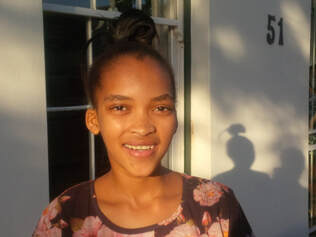
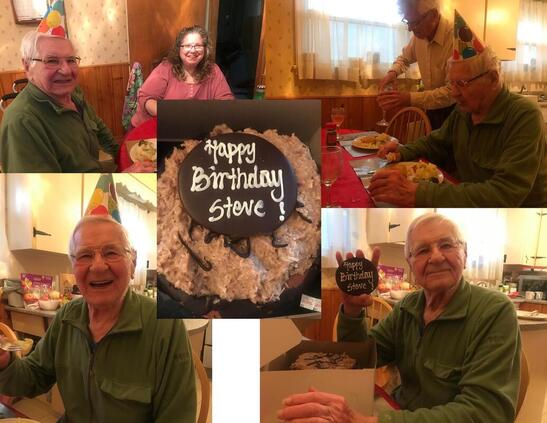
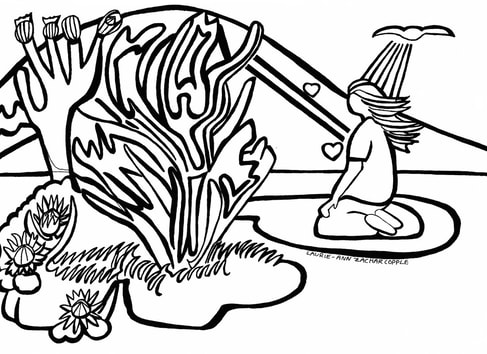
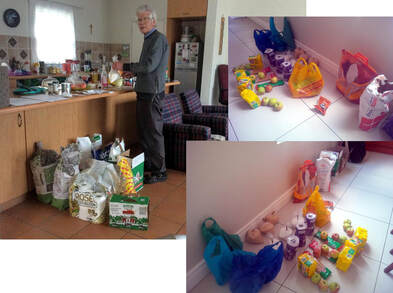
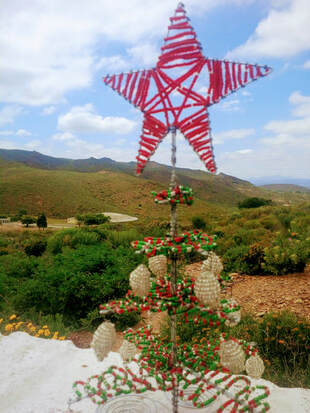
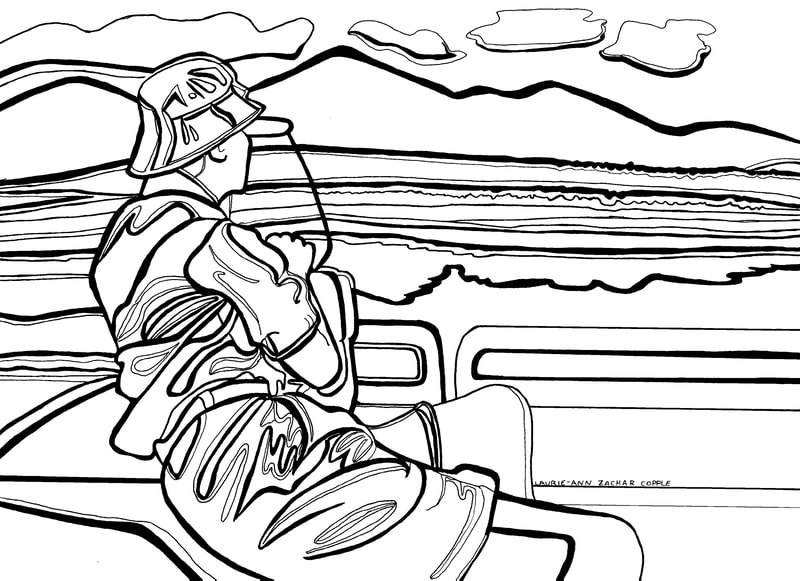
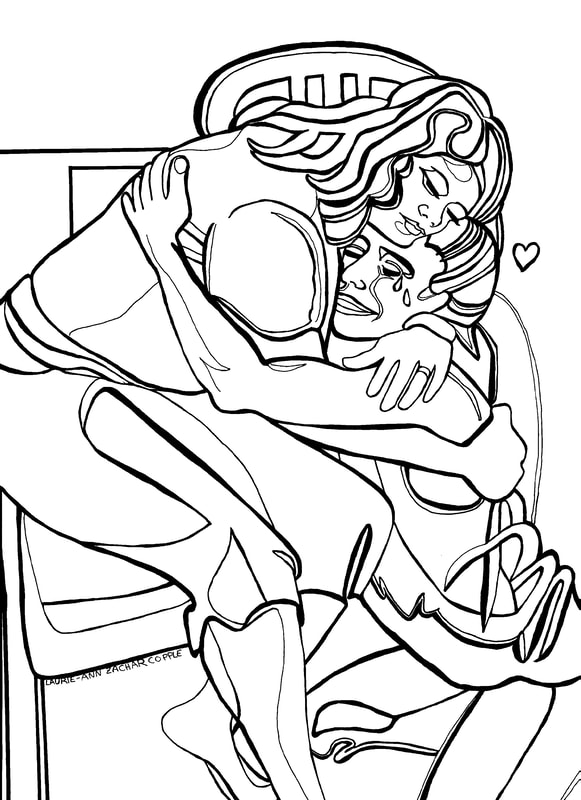
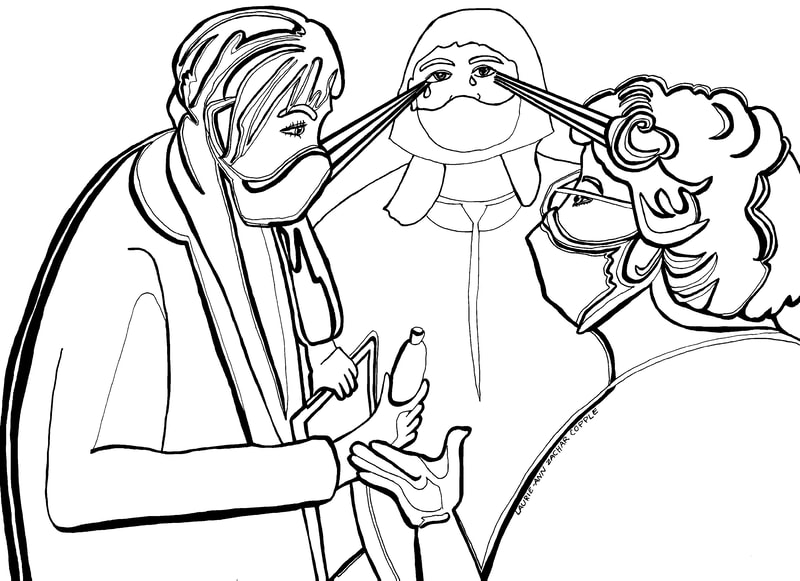
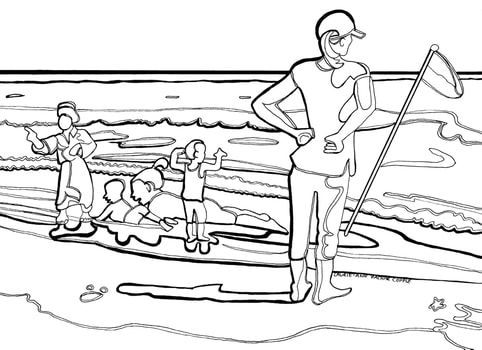
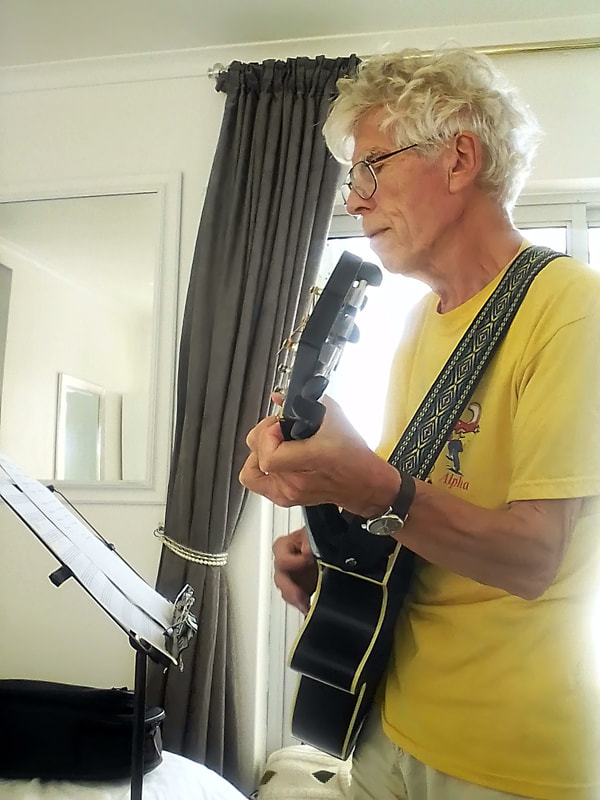
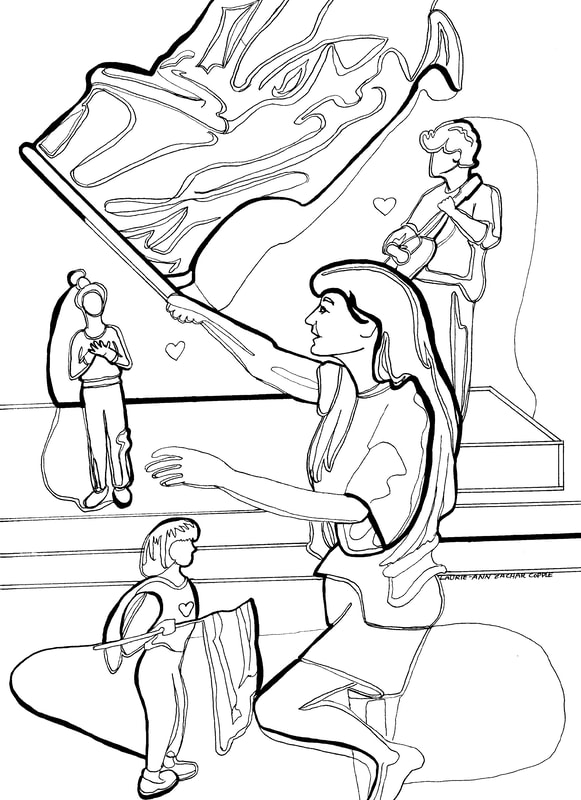
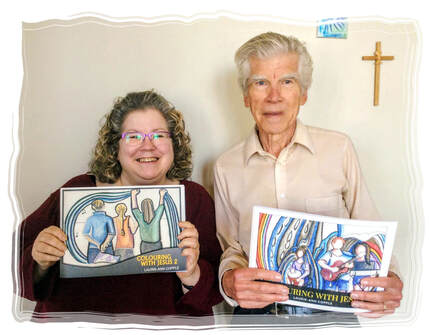
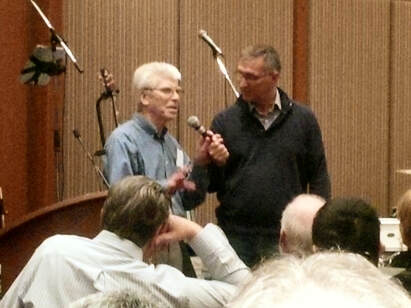
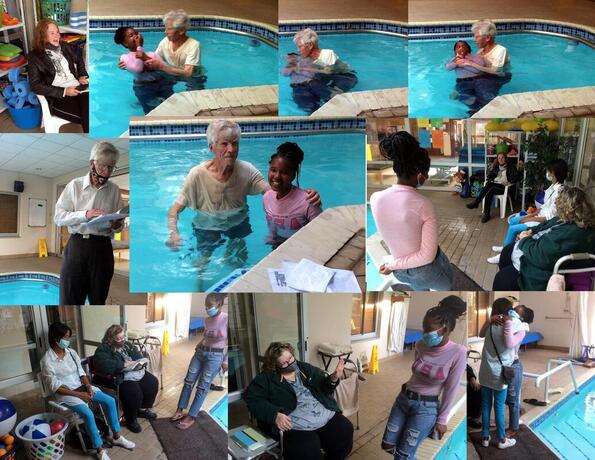
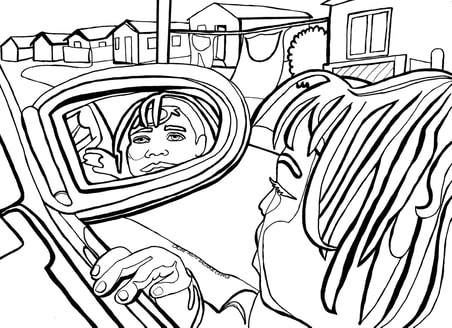
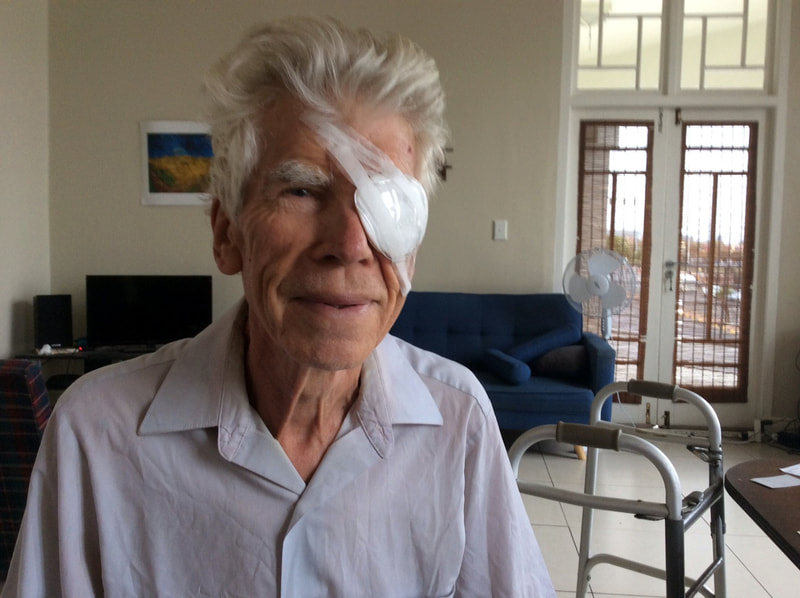
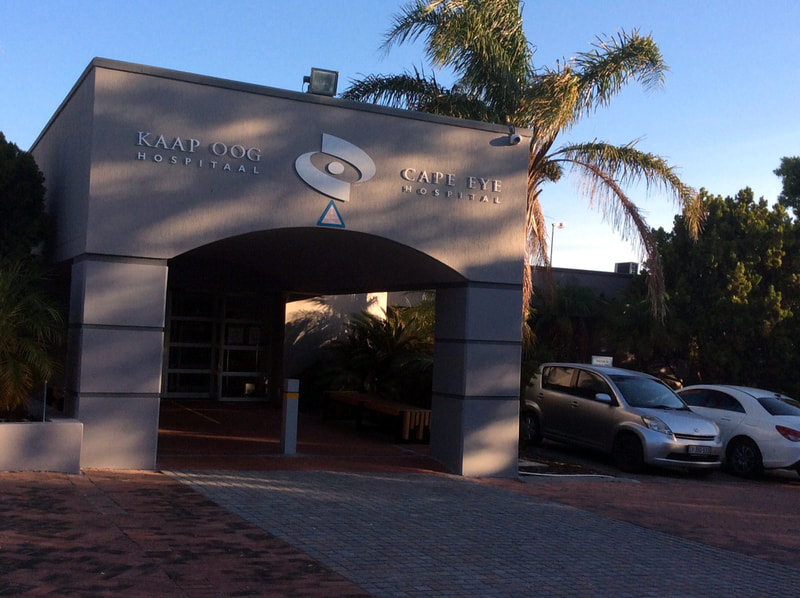
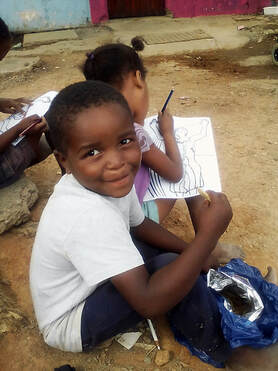
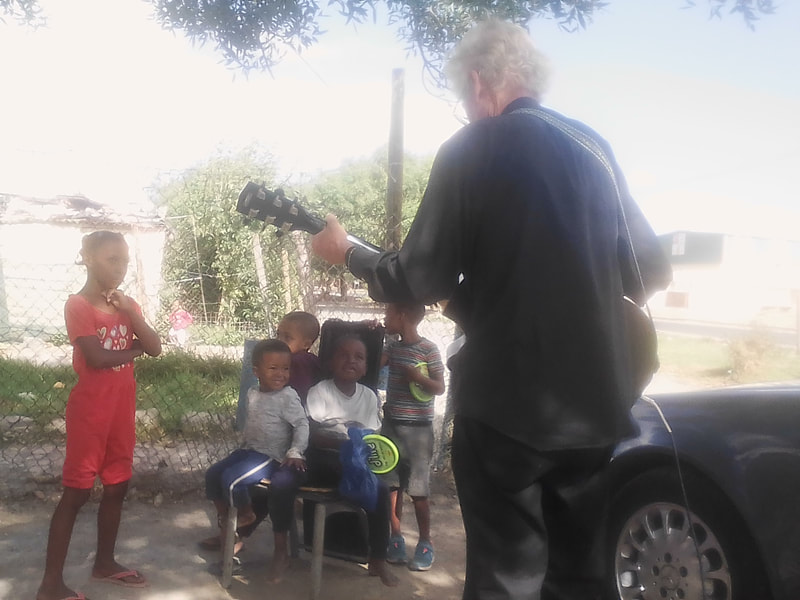
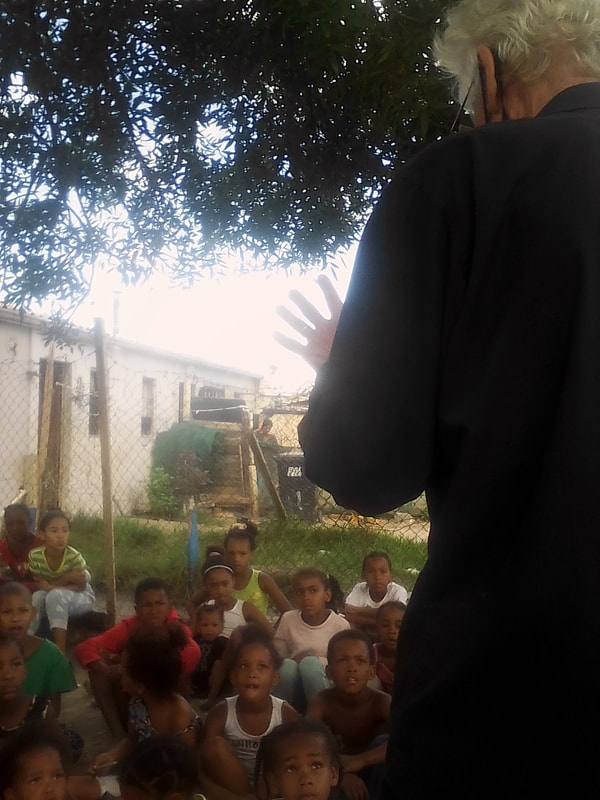
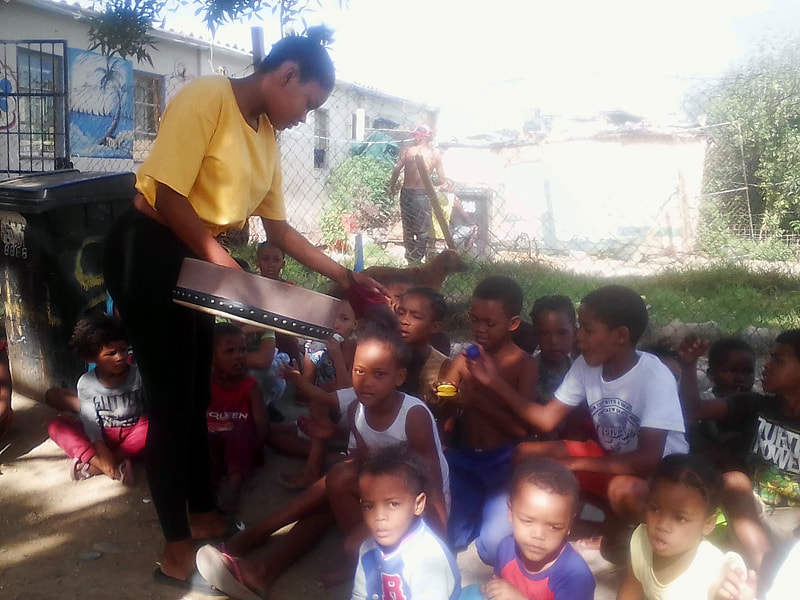
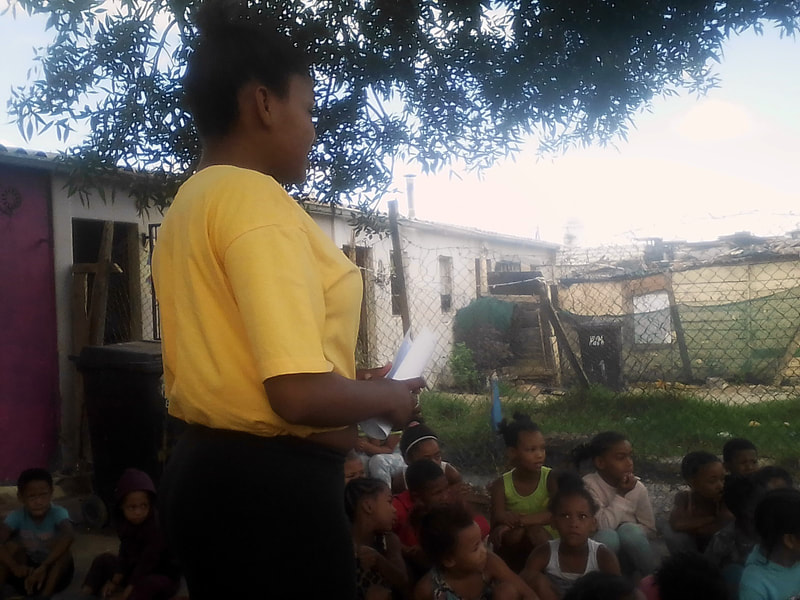
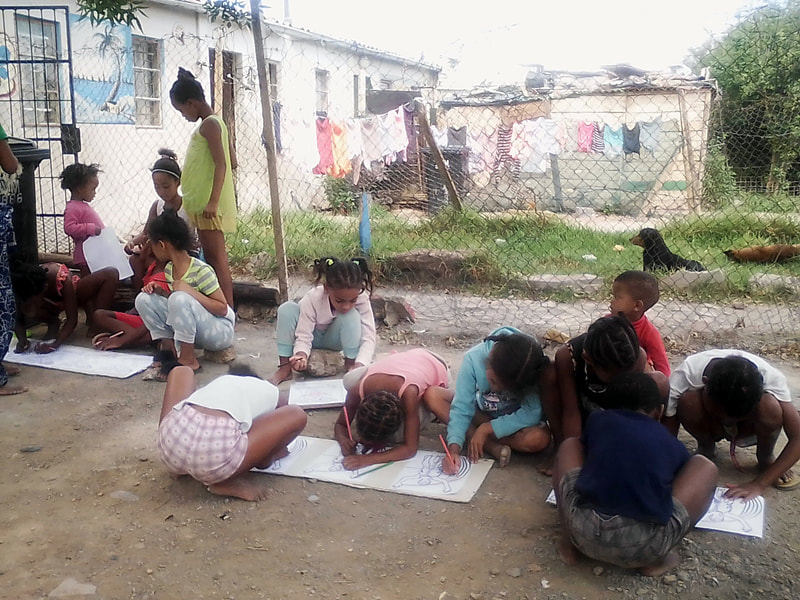

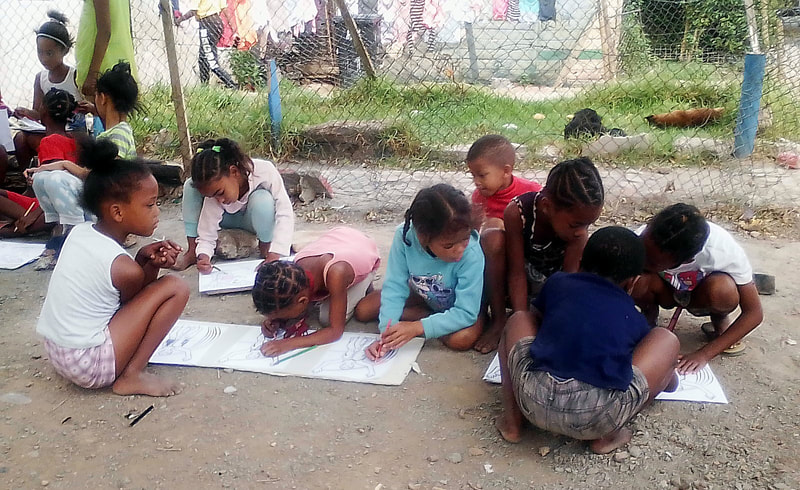
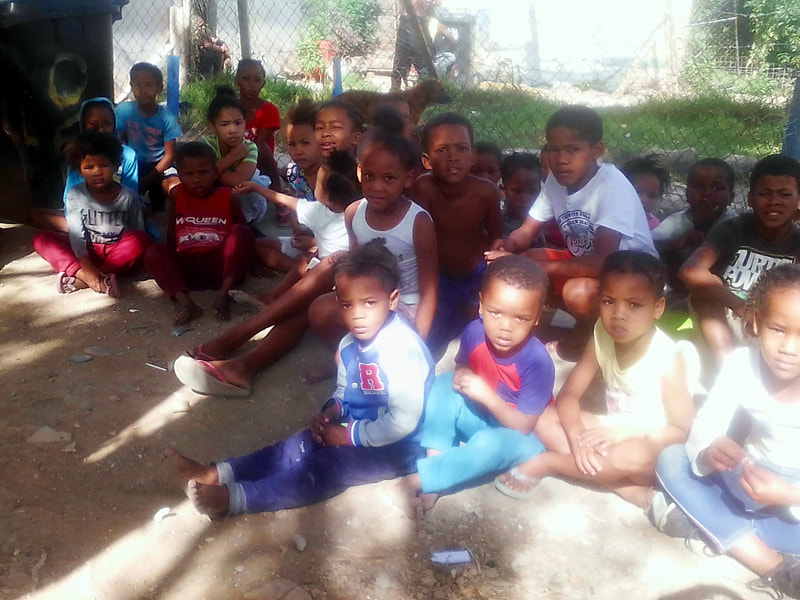

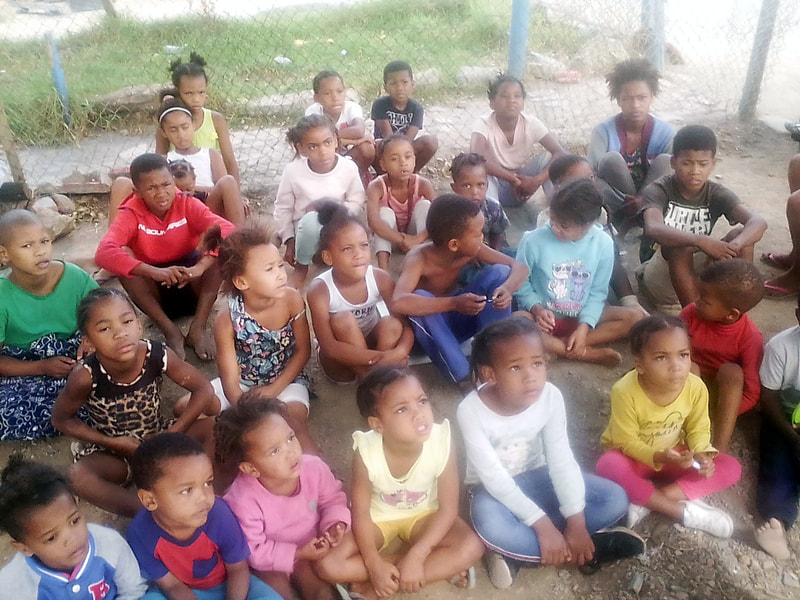
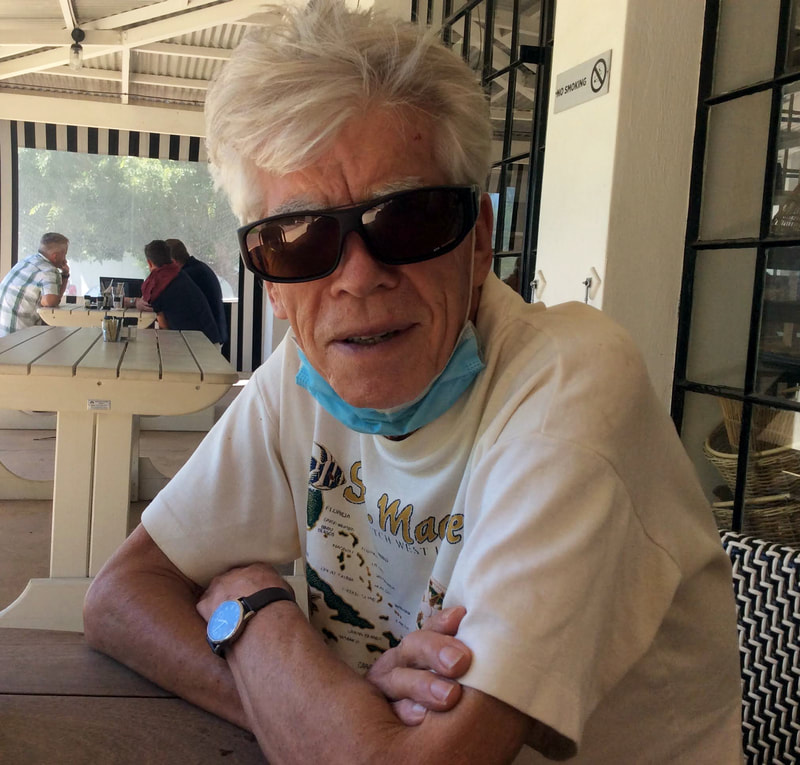

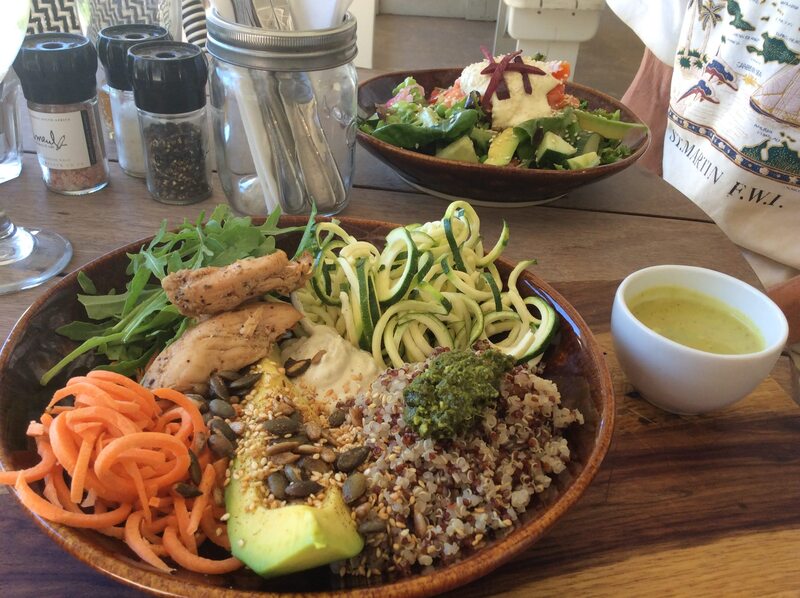
 RSS Feed
RSS Feed